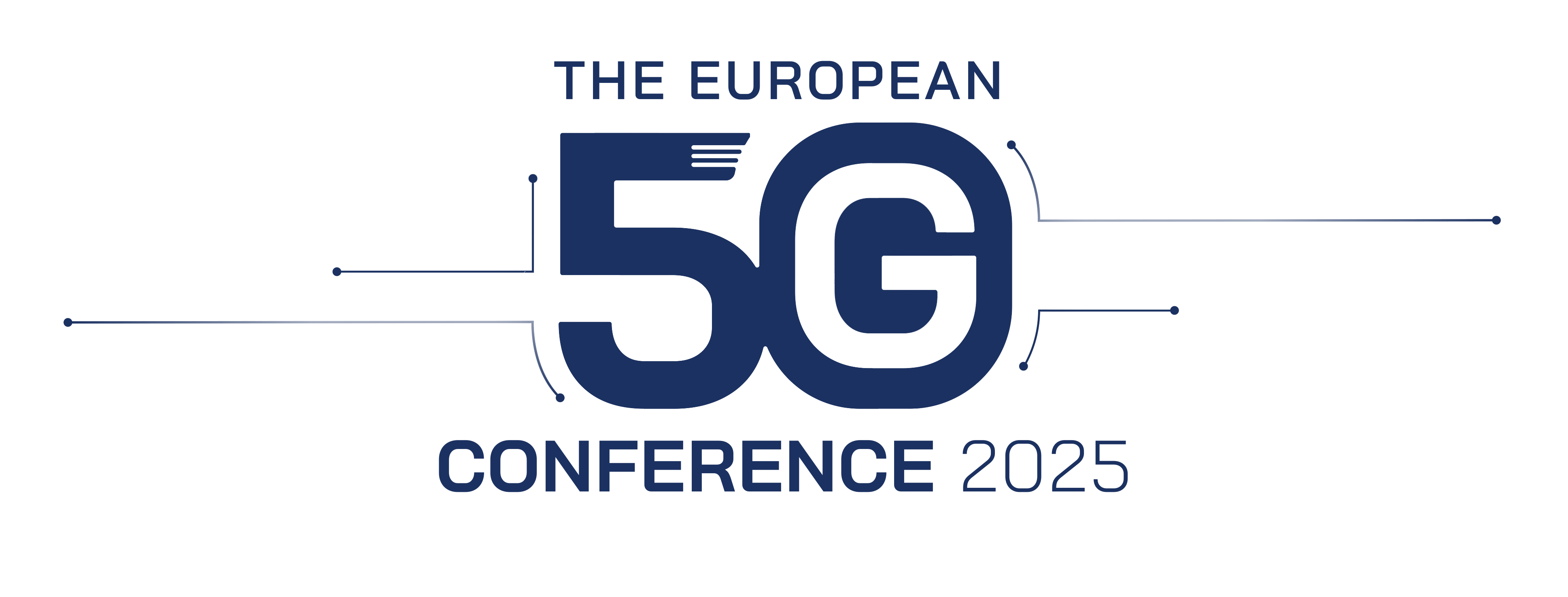The European 5G Conference 2024
Event Overview
The 2025 edition of the European 5G Conference took place on 28-29 January at the Hotel nhow Brussels Bloom. In its 9th year, the conference has an established reputation as Brussels’ leading meeting place for discussion on 5G policy.
The new Commission came into office at a pivotal time for 5G and for Europe’s digital future more broadly. Concerns were being raised around the pace of progress towards connectivity targets across the region, whilst at the same time, the promise of 5G Advanced and even 6G are on the horizon, potentially opening up new use-cases and an opportunity for operators to see a return on the huge investments that they have made. The event provided the opportunity to hear from high-level policymakers and industry stakeholders on these issues and other key themes such as cyber security, sustainability, connectivity and more. By looking back at the lessons learnt to date and forward to the path towards 5G Advanced and 6G, the event will provide a comprehensive insight into all the key policy aspects that are shaping the 5G ecosystem in Europe.
Key Themes
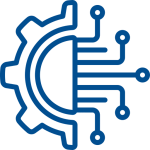







The European 5G Conference 2024
Event Highlights
Watch below the key takeaways from speakers and participants at the 9th European 5G Conference:
Useful Information
Hotel nhow Brussels Bloom
Rue Royale 250
1210 Bruxelles
Belgium
Venue
We have secured preferential rooms rates at a few hotels
Hotel nhow Brussels Bloom
Same location as the event venue
You can book this reduced rate by clicking the below button
Radisson Collection Hotel, Grand Place Brussels
15 minute walk from the event venue
You can book this reduced rate by clicking below and using the code EU5G2501
DoubleTree by Hilton Brussels
5 minute walk from the event venue
You can book this reduced rate by clicking the below button
Where is the conference being held?
This conference will take place at the Hotel Nhow Brussels Bloom in Brussels.
Is there a fee to register for the conference?
Yes, there are registration fees associated with certain organisation types. You can find our more here.
Can I follow this event virtually?
This event will take place as a fully in-person event in Brussels.
Where can I find out more about Forum Europe events?
Sign up to our newsletter to keep up to date with Forum Europe and Forum Global events.
Hotel nhow Brussels Bloom
Rue Royale 250
1210 Bruxelles
Belgium
Venue
We have secured preferential rooms rates at the following hotels
Hotel nhow Brussels Bloom
Same location as the event venue
You can book this reduced rate by clicking the below button.
DoubleTree by Hilton Brussels
5 minute walk from the event venue
You can book this reduced rate by clicking the below button.
Hotel Indigo Brussels
5 minute walk from the event venue
You can book this reduced rate by clicking the below button.
Hotel Le Plaza Brussels
10 minute drive from the event venue
You can book this reduced rate by contacting the hotel and quoting the code FEUROPE24
Where is the conference being held?
This conference will take place at the Hotel Nhow Brussels Bloom in Brussels.
Is there a fee to register for the conference?
Yes, there are registration fees associated with certain organisation types. You can find our more here.
Can I follow this event virtually?
This will take place as a fully in-person event in Brussels. We hope you can join us!
Where can I find out more about Forum Europe events?

Where are we? Progress in 5G network rollout & expansion

Securing Europe’s 5G Networks and Architecture

Finding a fair and sustainable approach to finance 5G ecosystem

Harnessing 5G to help achieve Europe’s climate targets

Towards 5G Advanced and the evolution towards 6G

WRC-23 and 5G – what should be Europe’s aspirations and how can these be achieved?

Spectrum sharing and licencing in the 5G era - mid-band, mmWave and other key frequencies
View the Event Photos from 2023
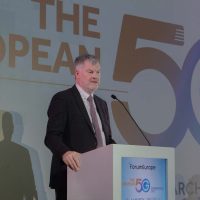
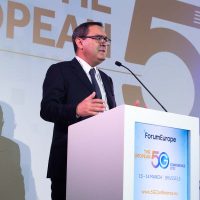



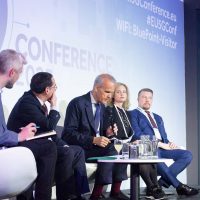
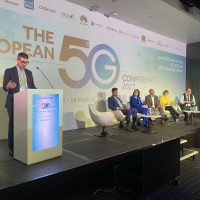
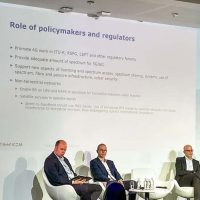

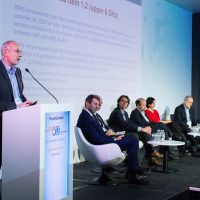


Organisers & Partners
Organised by

 Forum Europe
Forum Europe
Forum Europe events are where people and policy meet. We have been organising policy conferences in Brussels and around Europe since 1989. Our events provide unique insights from the people behind the policy and those seeking to influence it. Our expert team develop conference programmes with impact and provide first-class event logistics. Forum Europe is more than an event management and conference production specialist. With offices in Brussels and the UK, we operate across Europe and globally. Through our international arm, Forum Global, our events cover five continents, and engage policymakers and industry at national and regional levels around the world. Our mission is to drill down to the issues that matter, creating policy events that are ahead of the curve, facilitating frank and open debate on some of the most pressing issues facing Europe and the world today.
Platinum Partners
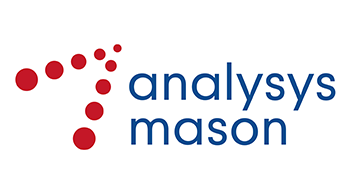
 Analysys Mason
Analysys Mason
Analysys Mason is the world’s leading management consultancy focused on telecoms, media and technology (TMT). They give clarity and confidence in answering our clients’ biggest commercial questions: What strategy will best enhance value? What implementation plan will be most successful? What is the optimal positioning for five years’ time?
Analysys Mason bring together commercial and technical expertise across four interconnected consultancy practices strengthened by globally respected research.
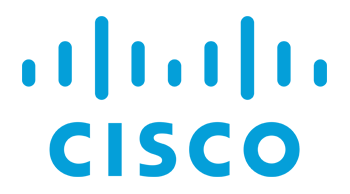
 Cisco
Cisco
Cisco offers an industry-leading portfolio of technology innovations. With networking, security, collaboration, cloud management, and more, they help to securely connect industries and communities.
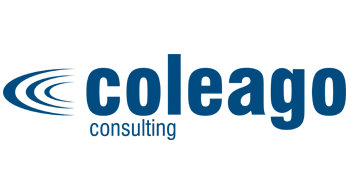
 Coleago Consulting
Coleago Consulting
Coleago is a telecommunications consulting and training firm. They offer an experience-based consulting approach, with project teams entirely made up of partner-level consultants, each with a minimum of 20 years’ experience in the telecoms sector.
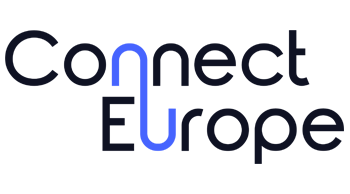
 Connect Europe
Connect Europe
Connect Europe is the voice of the leading providers of connectivity networks and services in Europe. Their members are at the forefront of innovation in the telecom and technology ecosystems, connecting over 270 million Europeans with cutting-edge mobile and fixed networks, such as fibre and 5G. They also deliver advanced services, ranging from first-class IT, AI and cybersecurity solutions, to entertainment and content. As the main investors in the industry, our members drive the digital transformation of the Continent , accounting for more than 70% of total telecom sector investment in Europe. Formerly known as ETNO, we stand for an improved policy and regulatory environment that enables citizens and businesses to benefit from digital connectivity and services.
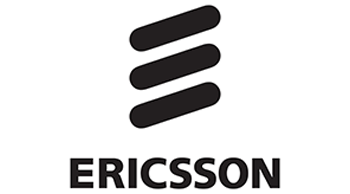
 Ericsson
Ericsson
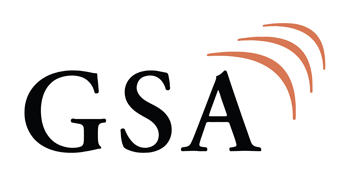
 GSA
GSA
GSA (the Global mobile Suppliers Association) is a not-for-profit industry organisation representing companies across the worldwide mobile ecosystem engaged in the supply of infrastructure, semiconductors, test equipment, devices, applications and mobile support services.
GSA actively promotes the 3GPP technology road-map – 3G; 4G; 5G, – and is a single source of information resource for industry reports and market intelligence. GSA Members drive the GSA agenda and define the communications and development strategy for the Association.
The GSA Spectrum Group develops strategies and plans, and contributes studies and technical analysis to international, regional and individual country policy-makers and regulators to facilitate the timely availability of spectrum for use by mobile network operators.
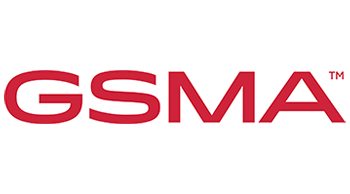
 GSMA
GSMA
The GSMA is a global organisation unifying the mobile ecosystem to discover, develop and deliver innovation that helps business and society thrive.
Their vision is to unlock the full power of connectivity so that people, industry, and society thrive. Representing mobile operators and organisations across the mobile ecosystem and adjacent industries, the GSMA delivers for its members across three broad pillars: Industry Services and Solutions, Connectivity for Good, and Outreach.
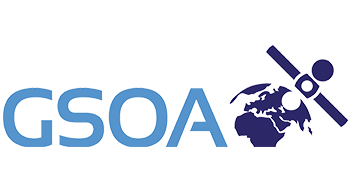
 GSOA
GSOA
GSOA is a non-profit organisation established with the objective of serving and promoting the common interests of satellite operators from Europe, the Middle East, Africa and the CIS.
The Association today represents the interests of 21 satellite operators who deliver information communication services across the globe. Together ESOA Members provide invaluable communications services to the whole world including emergency communications, live broadcasting, maritime and aero communications, secure services for governments, 24-7 monitoring of industrial processes such as energy plants and a whole range of other communications capabilities that society has come to rely on.
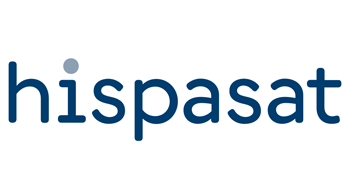
 Hispasat
Hispasat
Redeia’s operator and satellite service provider, Hispasat, offers broadband and satellite connectivity solutions that include Internet access, mobility and extension of cellular networks, as well as other value-added proposals to governments, corporations and operators of telecommunications in America, Europe and North Africa . It is also a leader in the dissemination and distribution of audiovisual content in Spanish and Portuguese, including the transmission of important digital platforms of Direct Home Television (DTH) and High Definition Television (TVAD), as well as the management of transport and audiovisual signal from the Hispasat Peru teleport in Lurín.
Hispasat, made up of companies with a presence both in Spain and in North and South America, where its Brazilian subsidiary Hispamar is located, is one of the world’s leading companies by revenue in its sector and the main communications bridge between Europe and America.

 Huawei
Huawei
Founded in 1987, Huawei is a leading global provider of information and communications technology (ICT) infrastructure and smart devices.
Huawei have 207,000 employees and operate in over 170 countries and regions, serving more than three billion people around the world. We are committed to bringing digital to every person, home and organization for a fully connected, intelligent world.
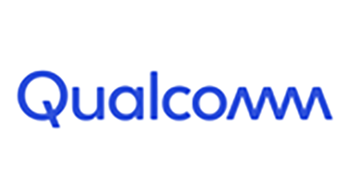
 Qualcomm
Qualcomm
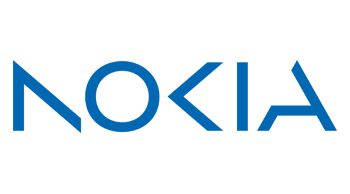
 Nokia
Nokia
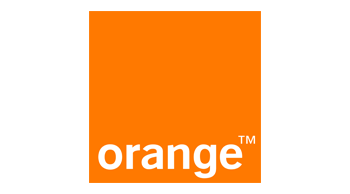
 Orange
Orange
Orange have designed a range of services that enable everyone to switch to an energy solution that’s adapted to their needs and budget.
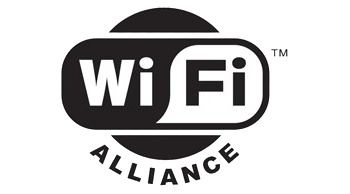
 Wi-Fi Alliance
Wi-Fi Alliance
Wi-Fi Alliance ® is the worldwide network of companies that brings you Wi Fi ® . Members of our collaboration forum come together from across the Wi-Fi ecosystem with the shared vision to connect everyone and everything, everywhere, while providing the best possible user experience.
Since 2000, Wi-Fi Alliance has completed more than 75,000 Wi-Fi certifications. The Wi-Fi CERTIFIED™ seal of approval designates products with proven interoperability, backward compatibility, and the highest industry-standard security protections in place.
Today, Wi-Fi carries more than half of the internet’s traffic in an ever-expanding variety of applications. Wi-Fi Alliance continues to drive the adoption and evolution of Wi-Fi, which billions of people rely on every day.
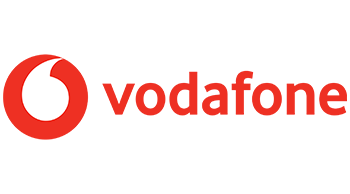
 Vodafone
Vodafone

 Cisco
Cisco
Cisco offers an industry-leading portfolio of technology innovations. With networking, security, collaboration, cloud management, and more, they help to securely connect industries and communities.

 GSOA
GSOA

 Huawei
Huawei
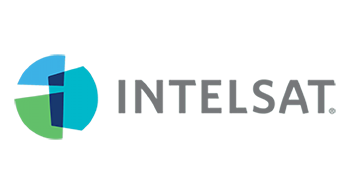
 Intelsat
Intelsat
Intelsat S.A. (NYSE: I) operates the world’s first Globalized Network, delivering high-quality, cost-effective video and broadband services anywhere in the world.
Intelsat’s Globalized Network combines the world’s largest satellite backbone with terrestrial infrastructure, managed services and an open, interoperable architecture to enable customers to drive revenue and reach through a new generation of network services.
Thousands of organizations serving billions of people worldwide rely on Intelsat to provide ubiquitous broadband connectivity, multi-format video broadcasting, secure satellite communications and seamless mobility services. The end result is an entirely new world, one that allows us to envision the impossible, connect without boundaries, and transform the ways in which we live.
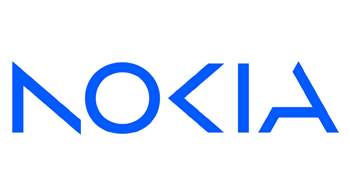
 Nokia
Nokia
Gold Partner
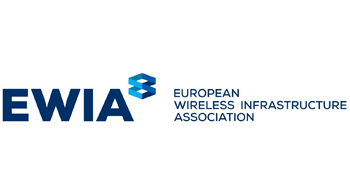
 EWIA
EWIA
The European Wireless Infrastructure Association is the European trade association of wholesale wireless infrastructure providers. Our members invest in and operate wireless infrastructure essential to the delivery of mobile voice, wireless broadband and other wireless networks.
EWIA advocates policies that encourage the network infrastructure investment and deployment necessary to make advanced wireless broadband available everywhere for consumers, businesses, health care, public safety and the countless other sectors that rely on always-on wireless connections.
Silver Partner

 Shure
Shure
With a history of innovation that began in 1925, Shure has turned a passion for making great microphones and audio electronics into an obsession.
Shure continues to set the worldwide industry standard for superior, reliable products.
Audio Partner
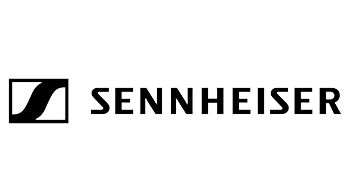
 Sennheiser
Sennheiser
Knowledge Partners

 Aetha Consulting
Aetha Consulting
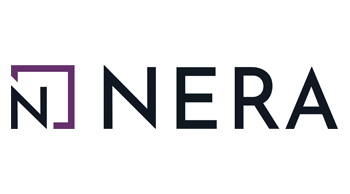
 NERA Economic Consulting
NERA Economic Consulting
NERA Economic Consulting is a global firm of experts dedicated to applying economic, finance, and quantitative principles to complex business and legal challenges.
For half a century, NERA’s economists have been creating strategies, studies, reports, expert testimony, and policy recommendations for government authorities and the world’s leading law firms and corporations.
NERA bring academic rigor, objectivity, and real world industry experience to bear on issues arising from competition, regulation, public policy, strategy, finance, and litigation. NERA’s clients value our ability to apply and communicate state-of-the-art approaches clearly and convincingly, our commitment to deliver unbiased findings, and our reputation for quality and independence.
NERA’s clients rely on the integrity and skills of our unparalleled team of economists and other experts backed by the resources and reliability of one of the world’s largest economic consultancies. With its main office in New York City, NERA serves clients from more than 25 offices across North America, Europe, and Asia Pacific.
Media Partner
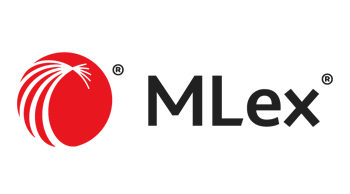
 MLex
MLex
An independent news organization with a global reach, MLex is focused on identifying regulatory risk as and wherever it emerges, empowering our customers — the world’s leading law firms, corporations, hedge funds, advisory firms and regulators — to navigate threats and opportunities in a world where regulation is increasingly complex and interconnected.
We have a track record of uncovering regulatory risk before it breaks in other news outlets, with exclusive reporting across Antitrust, M&A, State Aid, Trade, Data Privacy & Security, Technology & AI, Energy, Financial Services and Financial Crime.
Speakers Included
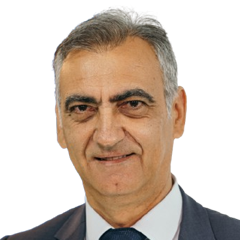
 Thomas Skordas, Deputy Director General, DG CONNECT, European Commission
Thomas Skordas, Deputy Director General, DG CONNECT, European Commission
Thomas Skordas received his Diploma in Electrical Engineering in 1984 and his PhD in Computer Science in 1988. From 1988 to 1995, he worked in France as a Research Fellow and project leader in EU-funded R&D projects in the areas of Information Technology and Robotics.
In 1995, Thomas joined the European Commission as a Research Programme Officer in the Directorate General Information Society & Media (DG INFSO). Since then, Thomas has worked in various units of DG INFSO (which became DG CONNECT in 2012) dealing with ICT research in the context of the EU Research and Innovation Framework Programmes. From 2006 to 2009, he was Deputy Head of Unit for ICT Security and Trust. In 2009, he was appointed Head of the Photonics Unit and in 2014, Head of the Flagships Unit. In March 2017, Thomas was appointed Director of the Directorate for “Digital Excellence and Science Infrastructure” in DG CONNECT and in May 2022, he was appointed Deputy Director-General of DG CONNECT.
Thomas Skordas
Deputy Director General, DG CONNECT
European Commission
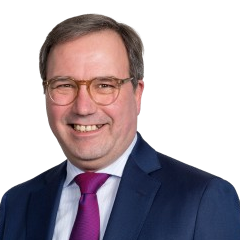
 Robert Mourik, 2025 Chairman, BEREC & Commissioner, ComReg Ireland
Robert Mourik, 2025 Chairman, BEREC & Commissioner, ComReg Ireland
On 5 October 2023, the Board of Regulators (BoR) has elected the current BEREC Vice-chair and Commissioner of the Irish Commission for Communications Regulation (ComReg, Ireland), Robert Mourik, as the new BEREC Chair for 2025.
With almost 30 years of experience in the telecoms sector as an industry executive and government official, the elected incoming BEREC Chair began his career in 1991 in the Dutch Department for Transport and Telecommunication, followed by serving as Telecom Attaché at the Netherlands’ Permanent Representation in Brussels from 1994 to 1999. He was also a Member and Chair of the Council Telecoms Working Group in 1998, when the first telecom regulatory package was adopted. Prior to his current role at ComReg, Robert Mourik worked for Telefónica, Vodafone Group, and Cubic Telecom, then a new entrant in the automotive IoT space.
Robert Mourik
2025 Chairman
BEREC
&
Commissioner
ComReg, Ireland
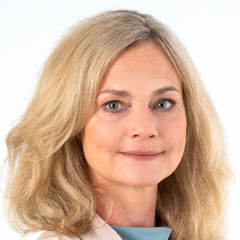
 Katja Kmet Vrcko, Advisor for International Affairs, AKOS, Slovenia & Co-chair of Cybersecurity and Resilience WG, BEREC
Katja Kmet Vrcko, Advisor for International Affairs, AKOS, Slovenia & Co-chair of Cybersecurity and Resilience WG, BEREC
More information available shortly.
Katja Kmet Vrcko
Advisor for International Affairs, AKOS, Slovenia & Co-chair of Cybersecurity and Resilience WG, BEREC

 Erzsébet Fitori, Executive Director, Smart Networks and Services Joint Undertaking
Erzsébet Fitori, Executive Director, Smart Networks and Services Joint Undertaking
The Smart Networks and Services Joint Undertaking (SNS JU) is pleased to announce the appointment of Erzsébet Fitori as its new Executive Director, effective 1 October. She will be the Chief Executive responsible for the day-to-day management of the JU and will act as its legal representative.
Her wealth of experience in the telecommunication industry positions her to work with the 6G-IA and the Commission in the Governing Board as pivotal in steering the SNS JU towards its missions of achieving industrial leadership in 5G deployment and 6G research and innovation in Europe.
Erzsébet holds an LL.M. degree in European Law from Leiden University (the Netherlands) and a Law degree from the University of Miskolc, Hungary. She has previously served as Head of EU Affairs & Relations at Vodafone Group and before that she led pan-European industry associations as the Director General of the FTTH Council Europe and Director of the European Competitive Telecommunications Association (ECTA). In her early career she was Head of Regulatory Affairs at Telenor and Assistant professor at the European and Private International Law Department of the University of Miskolc. She has a strong track record of creating and executing successful strategies, driving multistakeholder organisations, operational excellence and building highly effective teams.
Her mission will be to drive forward the SNS JU, a new entity officially established in November 2021. She will take over from Peter Stuckmann, DG CONNECT, who served as Interim Executive Director for the past two years and will complete setting up the Programme Office, currently employing 12 staff members. The SNS JU continues to grow and expects to reach its full staff capacity in early 2024.
Erzsébet Fitori
Executive Director
Smart Networks and Services Joint Undertaking
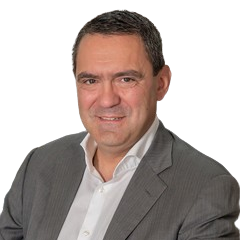
 Konstantinos Masselos, President, Hellenic Telecommunications & Post Commission (EETT), Greece
Konstantinos Masselos, President, Hellenic Telecommunications & Post Commission (EETT), Greece
Professor Konstantinos Masselos has been appointed as the President of the Hellenic Telecommunications & Post Commission (EETT) in February 2018.
He has been elected as President of the Body of European Regulators for Electronic Communications (BEREC) for 2023 and also, Vice-President for 2022 and 2024. Moreover, he served as Vice-President of BEREC in 2019.
He is Professor in the Department of Informatics and Telecommunications of the University of Peloponnese and he served as Rector of the above University during the period 2012-2017. From 2005 to 2008, he was Lecturer in the Department of Electrical and Electronic Engineering at the Imperial College London. Also, during the period 2010-2016 he was an Honorary Lecturer in the same Department.
During the period 2001-2004, he worked in the electronic communications industry. Since 2005 he has been collaborating as an expert with various units of the European Commission. Also, he was a member of the Scientific Committee of the European Cooperation in Science and Technology (COST) from 2015 to 2017.
Konstantinos Masselos
President
Hellenic Telecommunications & Post Commission (EETT), Greece
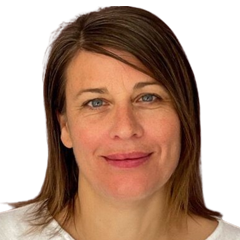
 Yvonne Finger, Head of Unit, Digitalization in SMEs, Sustainability, BNetzA
Yvonne Finger, Head of Unit, Digitalization in SMEs, Sustainability, BNetzA
Yvonne Finger is an economist with extensive experience in the field of energy regulation and digitalization issues. Currently, as a head of unit in the digitalization department at the Bundesnetzagentur (German Federal Network Regulatory Authority), she leads initiatives aimed at advancing digitalization within small and medium-sized enterprises (SMEs) and explores sustainability aspects of telecommunications networks and digitalization.
Before assuming her current role in 2020, she worked for nearly 16 years in the energy regulation department of the Bundesnetzagentur, where she specialized in regulatory issues, including the design and implementation of tendering procedures for renewable energy projects. She further developed expertise in the field of energy efficiency during her time as a seconded national expert at the European Commission, Directorate-General for Energy from 2008 to 2012. In her earlier career, she worked in the research department of an international management consultancy.
Yvonne Finger
Head of Unit, Digitalization in SMEs, Sustainability
BNetzA, Germany
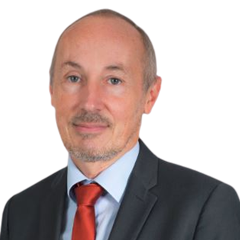
 Eric Fournier, Director for Spectrum Planning and International Affairs, ANFR, France
Eric Fournier, Director for Spectrum Planning and International Affairs, ANFR, France
Eric Fournier is currently Director for Spectrum Planning and International Affairs in the Agence Nationale des Fréquences (ANFR), the French public agency in charge of spectrum management (www.anfr.fr).
In this capacity, he is responsible for preparing the revisions of the French national table of spectrum allocation and for coordinating French positions in international meetings and conferences on spectrum within ITU, CEPT and EU. He was deputy head of the French delegation for RRC-06, WRC-07, WRC-12, WRC-15, WRC-19 and WRC-23.
He was chairman of the RSPG, a high-level advisory group that assists the European Commission in the development of radio spectrum policy, for the cycle 2022-23.
He has been involved in all discussions on major evolutions of spectrum in Europe and was Chairman of the Electronic Communication Committee (CEPT/ECC) from 2013 to 2018 and of the European Conference Preparatory Group for the World Radiocommunications Conference 2012 (CPG-12).
Eric is a graduate telecom engineer from SUPELEC (France).
Eric Fournier
Director for Spectrum Planning and International Affairs
ANFR, France
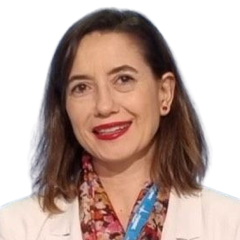
 Julia Inmaculada Criado Casado, Vice-Chair, RSPG
Julia Inmaculada Criado Casado, Vice-Chair, RSPG
More information available shortly.
Julia Inmaculada Criado Casado
Vice-Chair
RSPG
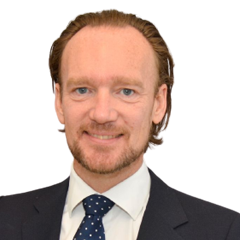
 Jonas Wessel, Director, Spectrum Management, Swedish Post & Telecom Agency - PTS
Jonas Wessel, Director, Spectrum Management, Swedish Post & Telecom Agency - PTS
Jonas Wessel is Director of the Spectrum Department at the Swedish Post and Telecom Agency (PTS).
He was also Chair of the Radio Spectrum Policy Group (RSPG) for the 2018-2019 period. The RSPG is a high-level advisory group that assists the European Commission in the development of radio spectrum policy. Jonas holds a MSC from the Royal Institute of Technology (KTH) in Industrial Engineering and Management. Jonas started his professional career as a strategy consultant, working mainly with business development in the telecoms and IT-sector.
In 2003, he joined the PTS as advisor on radio spectrum policy issues. After several positions within the Agency, including responsibility for auctions, he was assigned Director of the Spectrum Department in 2014. Jonas has been one of the driving forces behind the transformation of spectrum management in Sweden and has also been working with these issues internationally, mainly through the RSPG where he has been a delegate since 2004. He was Vice Chairman of the RSPG for the 2016-2017 period.
Jonas Wessel
Director, Spectrum Management
Swedish Post & Telecom Agency - PTS
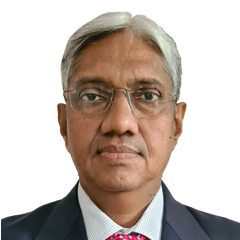
 Anil Kumar Lahoti, Chairman, Telecom Regulatory Authority India
Anil Kumar Lahoti, Chairman, Telecom Regulatory Authority India
More information available shortly.
Anil Kumar Lahoti
Chairman
Telecom Regulatory Authority India

 Alessandro Gropelli, Director General, Connect Europe
Alessandro Gropelli, Director General, Connect Europe
Alessandro Gropelli is the Director General of Connect Europe, the voice of the leading providers of connectivity networks and services in Europe. Alessandro is a technology and political affairs leader, trained in Europe and overseas. At Connect Europe, he leads the Team and represents the Association. He is also a Board member of GeSI, the Global Enabling Sustainability Initiative.
Alessandro previously served at ETNO, the former association representing leading telecom operators, in different positions. In the period 2018-2024 he was Deputy Director General: in this capacity, in 2023-2024, he curated the transformation project ETNO+, which resulted in the launch of Connect Europe. In 2023 he was named in the top 10 of Politico’s Power40 list as one of the most influential operatives in European affairs. In 2016-2018 he served as Director of Communications of ETNO and, back in 2013-2016, he was Head of Communications and Media.
Before joining the Association, between 2010 and 2013, Alessandro was European affairs advisor at Vodafone Group and vice-Chairman of the m-commerce Working Group of mobile operators’ association GSMA Europe. Prior to that, in 2009, he also worked in the Public Affairs team of Telecom Italia and as a public relations officer at the European Parliament.
Alessandro holds an Executive MBA from Copenhagen Business School (2021) and finalised executive education courses at the MIT (2018) and Berkeley Haas (2016). He graduated in public management from Bocconi University in Milan (2009) and concluded an education programme at the Hitotsubashi University of Tokyo (2008). He speaks English, Italian and French.
Alessandro Gropelli
Director General
Connect Europe
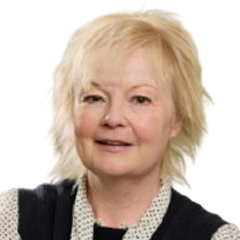
 Janette Stewart, Partner, Analysys Mason
Janette Stewart, Partner, Analysys Mason
Janette is one of Analysys Mason’s senior spectrum experts, with 25 years’ experience in radio engineering, wireless technologies, spectrum policy and spectrum management. Janette joined Analysys Mason in 2001, having previously worked for the UK Radiocommunications Agency (now Ofcom).
Janette’s expertise lies in mobile, wireless and broadband technologies and markets and her consulting experience includes advising on market developments in the wireless sector, wireless technology evolution, wireless business modelling, spectrum valuation, spectrum strategy, competition and regulation issues in the wireless market. She has worked with a wide range of public- and private-sector clients including national regulators, government departments, network operators, wireless industry trade associations, equipment vendors and telecoms users.
Her recent focus has been on 5G mobile and she has authored several published reports, including a study for Qualcomm and Ericsson on costs and benefits of 5G deployment in Europe, a study on 5G millimetre-wave deployment in Europe, reports for US industry body CTIA comparing 5G readiness in several world markets and a study on the benefits of cellular V2X technology for the 5GAA. Janette holds a BEng in Electronic Engineering from the University of Edinburgh, and an MSc in Radio Communications from the University of Bradford.
Janette Stewart
Partner
Analysys Mason
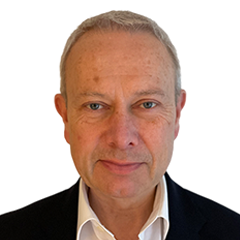
 Stefan Zehle, CEO, Coleago Consulting
Stefan Zehle, CEO, Coleago Consulting
Stefan Zehle is the MBA, Chairman, and CEO of Coleago Consulting. He has 28 years of experience in telecoms gained as a Director of a Mobile Operating company and as a specialist telecoms management consultant. He has worked in developed markets in Europe, Canada, the US, and also in emerging markets in the Middle East, Africa, and the Far East. As the 2nd person on the ground, he played a pivotal role in launching Nedjma, the 3rd Algerian mobile operator. Stefan has worked on over 70 mobile licence bids and spectrum valuation projects. Co-author of the Economist’s Guide to Business Planning.
Stefan Zehle
CEO
Coleago Consulting

 Erika Tejedor, Vice President, Spectrum Regulations, Ericsson
Erika Tejedor, Vice President, Spectrum Regulations, Ericsson
Erika Tejedor is Director of Government and Policy Advocacy at Ericsson and focuses on ensuring harmonized future spectrum availability for mobile globally, with focus on 5G and 6G. During her career, she has focused on spectrum from different perspectives: research, product development, 3GPP RAN4 and ETSI standardization as well as spectrum regulation. At the moment, Erika focuses on spectrum policy strategies, ITU-R activities and coordination of spectrum related work across the different regions. Erika graduated from the University of Zaragoza (Spain) and the Linköping University (Sweden) and holds a Master in Electrical and Electronics Engineering and Wireless Communications.
Erika Tejedor
Vice President, Spectrum Regulations
Ericsson
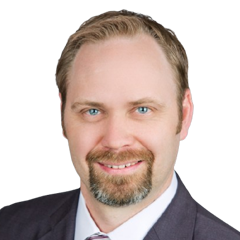
 Kevin Robinson, CEO, Wi-Fi Alliance
Kevin Robinson, CEO, Wi-Fi Alliance
Kevin Robinson is a 15-year veteran of Wi-Fi Alliance and became CEO of the organization in October 2022. Kevin is focused on securing sufficient, harmonized global Wi-Fi spectrum, deepening engagement and cohesion across the Wi-Fi ecosystem, and evolving the organization to ensure it remains as nimble as the industry it serves.
Serving as Wi-Fi Alliance’s Vice President of Marketing for the last seven years, Robinson has led many of the organization’s most transformative initiatives and has been a leading ambassador for promoting WiFi and WiFi Alliance as a collaboration forum worldwide. Kevin oversaw branding, communications, market development, product management, program marketing, and public relations for the organization. He was also responsible for driving the development of Wi-Fi Alliance corporate strategy.
Before joining Wi-Fi Alliance in 2008, Kevin enjoyed working with early-stage technology startups on business strategy consulting and technology market research. Kevin is a veteran of the United States Army, where he served as a Captain in the Infantry. Kevin holds a BS in Computer Science from the United States Military Academy at West Point and an MBA with a specialization in Entrepreneurship from The University of Texas at Austin. He lives with his family in Austin, Texas.
Kevin Robinson
CEO
Wi-Fi Alliance
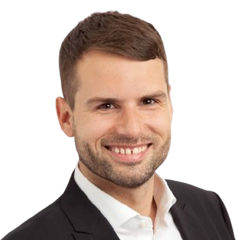
 Dragan Jovanovic, Chair, Strategy and Policy Working Group, EWIA
Dragan Jovanovic, Chair, Strategy and Policy Working Group, EWIA
More information available shortly.
Dragan Jovanovic
Chair, Strategy and Policy Working Group
EWIA

 Andreas Wilzeck, Head of Spectrum Policy and Standards, Sennheiser electronic SE & Co. KG
Andreas Wilzeck, Head of Spectrum Policy and Standards, Sennheiser electronic SE & Co. KG
Dr.-Ing. Andreas Wilzeck is Head of Spectrum Policy and Standards at Sennheiser electronic GmbH & Co. KG, Germany.
He is Vice-Chair of the ETSI TC DECT, was Chair of the ETSI Evaluation Group for IMT-2020 and is an active participant in the standardisation work of various ETSI technical committees. He also participates in WRC, ITU-R, CEPT and other PMSE-related spectrum regulatory work globally.
He received the Dr.-Ing. degree from the Faculty of Electrical Engineering and Computer Science at Gottfried Wilhelm Leibniz Universität Hannover in August 2009.
Andreas Wilzeck
Head of Spectrum Policy and Standards,
Sennheiser

 Isabelle Mauro, Director General, GSOA
Isabelle Mauro, Director General, GSOA
More information available shortly.
Isabelle Mauro
Director General
GSOA

 Azeddine Gati, Director, Carbon Assessment Department, Orange
Azeddine Gati, Director, Carbon Assessment Department, Orange
Azeddine Gati is currently the carbon assessment department director in Orange’s Innovation division. His work focuses on ICT environmental assessment, data for green solutions, flexible energy opportunities, and green procurement. He has managed multiple European projects on 2G to 5G networks, developing radio interfaces, architectures, and service requirements. His current interests include network decarbonization and energy monetization.
Azeddine Gati
Director, Carbon Assessment Department
Orange
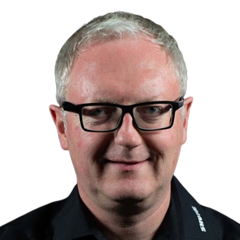
 Wolfgang Bilz, Head of Spectrum and Regulatory Affairs Europe, Shure
Wolfgang Bilz, Head of Spectrum and Regulatory Affairs Europe, Shure
More information available shortly.
Wolfgang Bilz
Head of Spectrum and Regulatory Affairs Europe
Shure
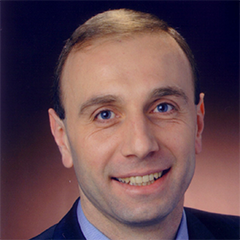
 Branimir Stantchev, Head of Sector, Spectrum for Wireless Broadband Representative, European Commission
Branimir Stantchev, Head of Sector, Spectrum for Wireless Broadband Representative, European Commission
Branimir is responsible for developing and implementing EU-level policy initiatives with focus on wireless broadband and 5G. These relate to the harmonised and flexible use of spectrum, in particular for mobile broadband and vertical applications as well as a long-term strategy for the long-term use of UHF broadcasting spectrum.
Branimir has been working with the European Commission since 2008. He started his professional career in 1995 at the Vodafone Chair for Mobile Communications Systems at the Dresden University, Germany. From 2000 until 2008 he worked with the companies Philips, Qimonda and Signalion in Germany in the area of wireless equipment design, manufacturing and marketing.
Branimir has a PhD degree in mobile communications from the Dresden University. He has contributions to Wi-Fi standardisation.
Branimir Stantchev
Head of Sector, Spectrum for Wireless Broadband Representative
European Commission
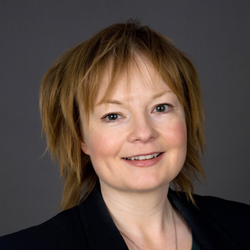
 Janette Stewart, Partner, Analysys Mason
Janette Stewart, Partner, Analysys Mason
More information available shortly.
Janette Stewart
Partner
Analysys Mason
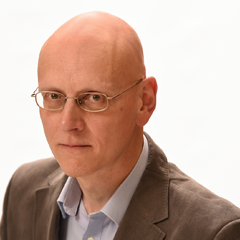
 Glyn Carter, Future Spectrum Director, GSMA
Glyn Carter, Future Spectrum Director, GSMA
More information available shortly.
Glyn Carter
Future Spectrum Director
GSMA
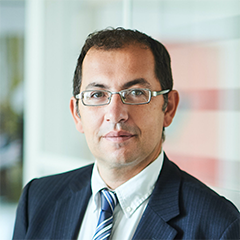
 Luigi Ardito, Senior Director of Government Affairs EMEA, Qualcomm
Luigi Ardito, Senior Director of Government Affairs EMEA, Qualcomm
More information available shortly.
Luigi Ardito
Senior Director of Government Affairs EMEA
Qualcomm
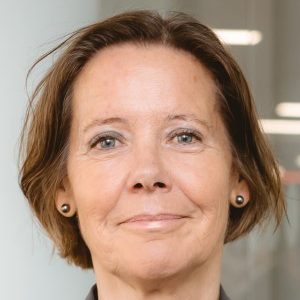
 Lotte Abildgaard, Director Public Policy, Europe, GSMA
Lotte Abildgaard, Director Public Policy, Europe, GSMA
More information available shortly.
Lotte Abildgaard
Director Public Policy, Europe
GSMA
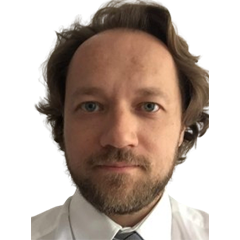
 Aleksander Soltysik, Chairman, RSPG
Aleksander Soltysik, Chairman, RSPG
More information available shortly.
Aleksander Soltysik
Chairman
RSPG
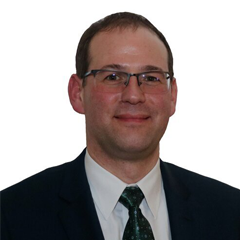
 Alex Kuehn, Head of Section, International Spectrum Affairs, Spectrum Planning and Innovative Spectrum Usage, BNetzA
Alex Kuehn, Head of Section, International Spectrum Affairs, Spectrum Planning and Innovative Spectrum Usage, BNetzA
Alex Kühn
Head of Section, International Spectrum Affairs, Spectrum Planning and Innovative Spectrum Usage
BNetzA
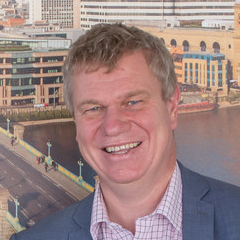
 Chris Woolford, Chairman, CEPT Electronic Communications Committee (ECC); & Director, International Spectrum Policy, Ofcom
Chris Woolford, Chairman, CEPT Electronic Communications Committee (ECC); & Director, International Spectrum Policy, Ofcom
Chris Woolford is Ofcom’s Director of International Spectrum Policy where his responsibilities cover the UK’s international spectrum interests, especially in relation to the ITU, CEPT and EU. He is a member of Ofcom’s Spectrum Executive Team and Strategy Steering Group.
Chris is active in various European spectrum committees and currently represents the UK on the Radio Spectrum Policy Group (RSPG). He has closely engaged for the UK on a number of key European and international spectrum initiatives and led the UK delegations to WRC-15 and WRC-12.
Before joining Ofcom, Chris worked in various UK Government Departments, including 6 years at Oftel, where he worked on different aspects of telecommunications regulation. Chris has a degree in mathematics and statistics from Manchester University.
Chris Woolford
Chairman, CEPT Electronic Communications Committee (ECC);
Director, International Spectrum Policy, Ofcom
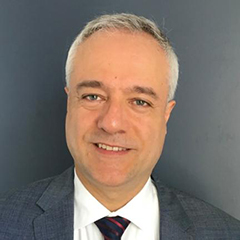
 Franco Accordino, Head of Unit, Investment in High Capacity Networks, DG Connect, European Commission
Franco Accordino, Head of Unit, Investment in High Capacity Networks, DG Connect, European Commission
Franco Accordino is the Head of the “Investment in High-Capacity Networks” unit within the European Commission’s Directorate-General for Communications Networks, Content and Technology (DG CONNECT). The unit is responsible for the deployment and take-up of very high-capacity broadband networks underpinning the Digital Single Market and promoting the European Commission’s vision and policy actions to turn Europe into a Gigabit Society by 2025.
Prior to this role, Franco was the Head of the “Knowledge Management and Innovative Systems” unit providing support to DG CONNECT policies and operations and delivering advanced solutions for the European Commission’s internal take up in such fields as data analytics, web platforms (futurium) and artificial intelligence.
Before becoming Head of Unit, Franco led the Task Force “Digital Futures”, a participatory foresight project aiming to devise 2050’s visions and policy ideas underpinned by the digital transformation.
During his experience at the European Commission, Franco worked as a scientific and policy officer and Director’s Assistant in such fields as Future and Emerging Technologies, Future Internet, High-Performance Computing, Grid and Cloud technologies, Trust and Security.
Before joining the European Commission, he worked at the ETHZ/CSCS National Supercomputing Centre of Switzerland and at the National Research Council of Italy where he conducted research on formal methods, languages and tools for complex systems specification.
He has a long-standing experience in several information technology fields, including formal methods and software engineering, cloud and distributed systems, network centric operating systems, web platforms, AI, machine learning and data analytics.
Franco Accordino
Head of Unit, Investment in High Capacity Networks, DG Connect
European Commission

 Alex Kuehn, Head of Section, International Spectrum Affairs, Spectrum Planning and Innovative Spectrum Usage, BNetzA
Alex Kuehn, Head of Section, International Spectrum Affairs, Spectrum Planning and Innovative Spectrum Usage, BNetzA
After a state exam of law at the University of Osnabrück, Mr Kühn has been working since 1998 in the area of legal internship (e.g. at Regional Court) of the Federal Network Agency, Germany; changing to national and international spectrum regulation on different levels in 2005. Nowadays he is the deputy head of section for international affairs and utilization concepts. His responsibilities cover strategic frequency utilization concepts and the transposition of those to the international level of CEPT, EU and ITU. Doing this and having been active in the preparation of three WRC’s, national and on CEPT CPG level, Mr Kühn participated in a number of international Groups, also as Head of the German Delegation. He has also chaired several groups and subgroups in the ITU and CEPT. Since 2005 he is responsible for national preparation of the WRC’s and served as CPG Vice-Chairman from 2010 to 2013 and as CPG chairman from 2013 to 2015.
Mr Kühn has been appointed as Chairman of the CEPT CPG in March 2016.
Alex Kühn
Head of Section, International Spectrum Affairs, Spectrum Planning and Innovative Spectrum Usage
BNetzA
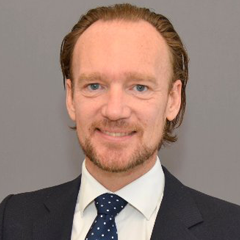
 Jonas Wessel, Director of the Spectrum Department, Swedish Post and Telecom Agency (PTS); & Member, RSPG
Jonas Wessel, Director of the Spectrum Department, Swedish Post and Telecom Agency (PTS); & Member, RSPG
Jonas Wessel is Director of the Spectrum Department at the Swedish Post and Telecom Agency (PTS). He is also Chair of the Radio Spectrum Policy Group (RSPG) for the 2018-2019 period. The RSPG is a high-level advisory group that assists the European Commission in the development of radio spectrum policy. Jonas holds a MSC from the Royal Institute of Technology (KTH) in Industrial Engineering and Management. Jonas started his professional career as a strategy consultant, working mainly with business development in the telecoms and IT-sector.
In 2003, he joined the PTS as advisor on radio spectrum policy issues. After several positions within the Agency, including responsibility for auctions, he was assigned Director of the Spectrum Department in 2014. Jonas has been one of the driving forces behind the transformation of spectrum management in Sweden and has also been working with these issues internationally, mainly through the RSPG where he has been a delegate since 2004. He was Vice Chairman of the RSPG for the 2016-2017 period.
Jonas Wessel
Director of the Spectrum Department, Swedish Post and Telecom Agency (PTS);
Member, RSPG
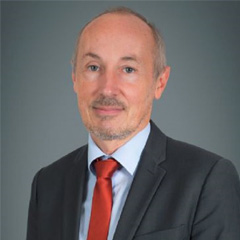
 Eric Fournier, Director for Spectrum Planning and International Affairs, Agence Nationale des Fréquences (ANFR)
Eric Fournier, Director for Spectrum Planning and International Affairs, Agence Nationale des Fréquences (ANFR)
Eric Fournier is currently Director for Spectrum Planning and International Affairs in the Agence Nationale des Fréquences (ANFR), the French public agency in charge of spectrum management (www.anfr.fr).
In this capacity, he is responsible for preparing the revisions of the French national table of spectrum allocation and for coordinating French positions in international meetings and conferences on spectrum within ITU, CEPT and EU. He was deputy head of the French delegation for RRC-06, WRC-07, WRC-12, WRC-15 and WRC-19.
He is currently chairman of the RSPG, a high-level advisory group that assists the European Commission in the development of radio spectrum policy. He has been involved in all discussions on major evolutions of spectrum in Europe and was Chairman of the Electronic Communication Committee (CEPT/ECC) from 2013 to 2018 and of the European Conference Preparatory Group for the World Radiocommunications Conference 2012 (CPG-12).
Eric is a graduate telecom engineer from SUPELEC (France).
Eric Fournier
Director for Spectrum Planning and International Affairs
Agence Nationale des Fréquences (ANFR)

 Heidi Himmanen, Chief Adviser, Traficom
Heidi Himmanen, Chief Adviser, Traficom
Dr. Heidi Himmanen is a Chief Adviser at the Finnish Transport and Communications Agency Traficom. She is co-chairing the 6G work in the Radio Spectrum Policy Group and has been contributing to the IMT-2030 framework in ITU-R. Her task is to promote the uptake of 5G in different sectors of society, such as transport, cities, and industry. The work includes supporting trials, innovation, and R&D, bridging the needs of industries and verticals, and the development work in spectrum management.
Heidi has previously worked as Head of Spectrum Supervision and Head of the Radio Networks Unit at the Finnish Communications Regulatory Authority (today Traficom). She holds a Dr. Sc. degree in Communications Engineering from University of Turku and a M. Sc. degree in Communications Engineering from Helsinki University of Technology (today Aalto University).
Heidi Himmanen
Chief Adviser
Traficom
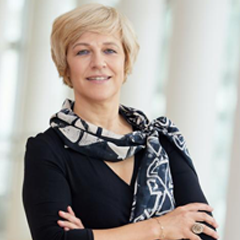
 Renate Nikolay, Deputy Director General, DG Connect, European Commission
Renate Nikolay, Deputy Director General, DG Connect, European Commission
Renate Nikolay is now Deputy Director-General for Communications Networks, Content and Technology. Previously, she was Head of Cabinet of Vera Jourova, Commissioner for Justice, Consumers and Gender Equality. She led the Unit of interinstitutional and international relations in DG Justice between 2011 and 2014 dealing with legislative files and international negotiations such as the ones on data protection with the US. Prior to that, she was advisor in the Cabinet of the first High Representative / Vice President Cathy Ashton where she led on the relations with the European Parliament in setting up the European External Action Service and on relations with Asia, in particular China. From 2004-2009 she was member of the Cabinet of the Trade Commissioners Peter Mandelson and Baroness Cathy Ashton where she followed the trade talks in the multilateral trade round of the World Trade Organisation (the Doha Round) and the EU-South Korea Free Trade Agreement which was finalised in 2009. She started her career in the European Commission in the Directorate General for Trade in November 2003 dealing with the accession negotiations of Vietnam to the World Trade Organisation and the Trade Policy Committee with the Member States. Prior to that she was a diplomat in the German Permanent Representation in Brussels and worked as private Secretary to the German G8 Sherpa in the German Ministry of Economics. She holds a law degree (Erstes und Zweites Staatsexamen) from the Free University in Berlin and a master as a Fulbright Scholar in Washington DC. She was also an Erasmus Scholar in France/Grenoble.
Renate Nikolay
Deputy Director General, DG Connect
European Commission
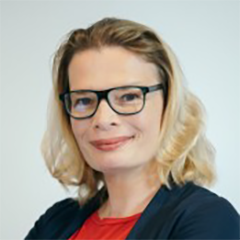
 Kamila Kloc, Director – Digital Decade and Connectivity, DG Connect, European Commission
Kamila Kloc, Director – Digital Decade and Connectivity, DG Connect, European Commission
Dr Kamila Kloc joined the European Commission in December 2004. Since January 2019, she holds a position of a Head of Unit Markets in Directorate B Electronic Communications Networks and Services of Directorate General for Communications Networks, Content and Technology.
Previously, she served as Deputy Head of Cabinet for Vice President Ansip responsible for Digital Single Market (DSM). Prior to joining the Cabinet, she worked at Directorate General for Energy, coordinating exemptions from regulatory access rules for gas pipelines.
During the Polish Presidency in 2011 she was seconded by the Commission to the President’s office of the Polish Energy Regulatory Authority. Earlier, she worked for 5 years at the Directorate General for Competition dealing with merger and antitrust cases. Prior to joining the Commission, she was emloyed at the Office for Competition and Consumer Protection in Poland as Adviser to the President.
Kamila Kloc started her professional career in academia and taught at Warsaw School of Economics as Assistant Professor. She has written her PhD on the role of competition policy in the public utilities sector with a special emphasis on telecommunications. She was a Fulbright scholar at the University of California in Berkeley and a Chevening fellow at Oxford University.
Kamila Kloc
Director – Digital Decade and Connectivity, DG Connect
European Commission
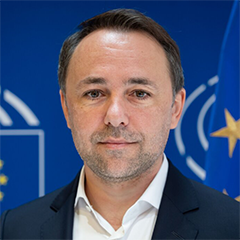
 Alin Mituța, Member, European Parliament
Alin Mituța, Member, European Parliament
Alin Mituța is a Romanian Member of the European Parliament sitting with the Renew Europe Group, and a member of, among others, ITRE and COVI committees.
Health is one of his priorities as MEP and he is a strong advocate for more EU competences for health, which he defended in the Conference on the Future of Europe. Under the health umbrella, he is also a strong supporter of EU measures to tackle inequalities between Member States especially in terms of access to HPV vaccination and screening.
He graduated in EU affairs at Sciences Po Paris and he spent his career working in the European institutions (European Parliament, Council of the EU and the European Economic and Social Committee), as well as state secretary and head of cabinet of the Prime Minister of Romania.
Alin Mituța
Member
European Parliament
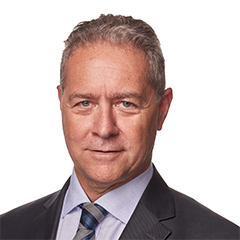
 Tonko Obuljen, Chair, BEREC
Tonko Obuljen, Chair, BEREC
Tonko Obuljen, President of the Council at HAKOM, graduated from the Faculty of Electrical Engineering and Computing, University of Zagreb in 1993.He has been active in the field of electronic communications ever since, which includes an engineering and managing experience in the microwave, satellite and fiber-optic systems as well as the broadcasting. He had previously been appointed as the Executive Director at HAKOM (2006-2008) and the Member of HAKOM’s Council (2009-2013). During negotiations on the accession of the Republic of Croatia into the European Union he was a member of working group for Chapter 10 – Information Society. He has been President of the Council at HAKOM since 2018. and the new BEREC Chair 2024.
Tonko Obuljen
Chair
BEREC
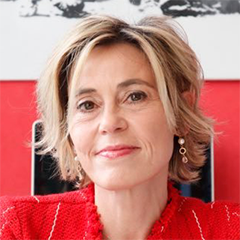
 Lorena Boix Alonso, Director – Digital Society, Trust & Cybersecurity, European Commission
Lorena Boix Alonso, Director – Digital Society, Trust & Cybersecurity, European Commission
Lorena Boix Alonso is Director for Digital Society, Trust and Cybersecurity in Directorate General for Communications Networks Content and Technology (DG CONNECT), at the European Commission. Formerly, she was Acting Director for Policy Strategy and Outreach and Head of Unit for Policy Implementation and Planning, also in DG CONNECT. Previously, she was Deputy Head of Cabinet of Vice President Neelie Kroes, Commissioner for the Digital Agenda and also during Ms Kroes’ mandate as Commissioner for Competition. She joined the European Commission Directorate-General for Competition in 2003. Prior to that, she has worked for Judge Rafael García Valdecasas, at the European Court of Justice, as well as Deputy Director and Legal Coordinator of the IPR-Helpdesk Project and in private practice in Brussels. She holds a Master of Laws from the Harvard Law School and a Licence Spéciale en Droit Européen from the Université Libre de Bruxelles. She graduated in Law from the University of Valencia.
Lorena Boix Alonso
Director – Digital Society, Trust & Cybersecurity
European Commission

 Aleksander Soltysik, Chairman, RSPG
Aleksander Soltysik, Chairman, RSPG
ALEKSANDER SOŁTYSIK is an attaché for the telecommunication sector in the Permanent Representation of Poland to the European Union and represents Ministry of Digital Affairs in the Council of the European Union. The main responsibilities are matters regarding radio spectrum, gigabit infrastructure, artificial intelligence and Digital Decade. Currently he is the Chair of the Radio Spectrum Policy Group – a high-level advisory group that assists the European Commission in the development of radio spectrum policy. He is also an outgoing co-rapporteur of the RSPG Working Group on Peer Review and Member State cooperation on authorizations and awards, which is responsible for annual reports on the implementation of the art. 35 of the European Electronic Communications Code. Aleksander was the Head of International Telecommunication Unit at the Ministry of Digital Affair, engaged in the International Telecommunication Union’s and CEPT matters, mainly focusing on the preparations for the World Radiocommunication Conferences. He was a Kosciuszko Foundation scholar at the Hoover Institution, Stanford University and hold a PhD degree from the Jagiellonian University in Cracow.
Aleksander Soltysik
Chairman
RSPG

 Chris Woolford, Chairman, CEPT Electronic Communications Committee (ECC); & Director, International Spectrum Policy, Ofcom
Chris Woolford, Chairman, CEPT Electronic Communications Committee (ECC); & Director, International Spectrum Policy, Ofcom
Chris Woolford is Ofcom’s Director of International Spectrum Policy where his responsibilities cover the UK’s international spectrum interests, especially in relation to the ITU, CEPT and EU. He is a member of Ofcom’s Spectrum Executive Team and Strategy Steering Group.
Chris is active in various European spectrum committees and currently represents the UK on the Radio Spectrum Policy Group (RSPG). He has closely engaged for the UK on a number of key European and international spectrum initiatives and led the UK delegations to WRC-15 and WRC-12.
Before joining Ofcom, Chris worked in various UK Government Departments, including 6 years at Oftel, where he worked on different aspects of telecommunications regulation. Chris has a degree in mathematics and statistics from Manchester University.
Chris Woolford
Chairman, CEPT Electronic Communications Committee (ECC);
Director, International Spectrum Policy, Ofcom

 Franco Accordino, Head of Unit, Investment in High Capacity Networks, DG Connect, European Commission
Franco Accordino, Head of Unit, Investment in High Capacity Networks, DG Connect, European Commission
Franco Accordino is the Head of the “Investment in High-Capacity Networks” unit within the European Commission’s Directorate-General for Communications Networks, Content and Technology (DG CONNECT). The unit is responsible for the deployment and take-up of very high-capacity broadband networks underpinning the Digital Single Market and promoting the European Commission’s vision and policy actions to turn Europe into a Gigabit Society by 2025.
Prior to this role, Franco was the Head of the “Knowledge Management and Innovative Systems” unit providing support to DG CONNECT policies and operations and delivering advanced solutions for the European Commission’s internal take up in such fields as data analytics, web platforms (futurium) and artificial intelligence.
Before becoming Head of Unit, Franco led the Task Force “Digital Futures”, a participatory foresight project aiming to devise 2050’s visions and policy ideas underpinned by the digital transformation.
During his experience at the European Commission, Franco worked as a scientific and policy officer and Director’s Assistant in such fields as Future and Emerging Technologies, Future Internet, High-Performance Computing, Grid and Cloud technologies, Trust and Security.
Before joining the European Commission, he worked at the ETHZ/CSCS National Supercomputing Centre of Switzerland and at the National Research Council of Italy where he conducted research on formal methods, languages and tools for complex systems specification.
He has a long-standing experience in several information technology fields, including formal methods and software engineering, cloud and distributed systems, network centric operating systems, web platforms, AI, machine learning and data analytics.
Franco Accordino
Head of Unit, Investment in High Capacity Networks, DG Connect
European Commission

 Alex Kuehn, Head of Section, International Spectrum Affairs, Spectrum Planning and Innovative Spectrum Usage, BNetzA
Alex Kuehn, Head of Section, International Spectrum Affairs, Spectrum Planning and Innovative Spectrum Usage, BNetzA
After a state exam of law at the University of Osnabrück, Mr Kühn has been working since 1998 in the area of legal internship (e.g. at Regional Court) of the Federal Network Agency, Germany; changing to national and international spectrum regulation on different levels in 2005. Nowadays he is the deputy head of section for international affairs and utilization concepts. His responsibilities cover strategic frequency utilization concepts and the transposition of those to the international level of CEPT, EU and ITU. Doing this and having been active in the preparation of three WRC’s, national and on CEPT CPG level, Mr Kühn participated in a number of international Groups, also as Head of the German Delegation. He has also chaired several groups and subgroups in the ITU and CEPT. Since 2005 he is responsible for national preparation of the WRC’s and served as CPG Vice-Chairman from 2010 to 2013 and as CPG chairman from 2013 to 2015.
Mr Kühn has been appointed as Chairman of the CEPT CPG in March 2016.
Alex Kühn
Head of Section, International Spectrum Affairs, Spectrum Planning and Innovative Spectrum Usage
BNetzA

 Jonas Wessel, Director of the Spectrum Department, Swedish Post and Telecom Agency (PTS); & Member, RSPG
Jonas Wessel, Director of the Spectrum Department, Swedish Post and Telecom Agency (PTS); & Member, RSPG
Jonas Wessel is Director of the Spectrum Department at the Swedish Post and Telecom Agency (PTS). He is also Chair of the Radio Spectrum Policy Group (RSPG) for the 2018-2019 period. The RSPG is a high-level advisory group that assists the European Commission in the development of radio spectrum policy. Jonas holds a MSC from the Royal Institute of Technology (KTH) in Industrial Engineering and Management. Jonas started his professional career as a strategy consultant, working mainly with business development in the telecoms and IT-sector.
In 2003, he joined the PTS as advisor on radio spectrum policy issues. After several positions within the Agency, including responsibility for auctions, he was assigned Director of the Spectrum Department in 2014. Jonas has been one of the driving forces behind the transformation of spectrum management in Sweden and has also been working with these issues internationally, mainly through the RSPG where he has been a delegate since 2004. He was Vice Chairman of the RSPG for the 2016-2017 period.
Jonas Wessel
Director of the Spectrum Department, Swedish Post and Telecom Agency (PTS);
Member, RSPG

 Eric Fournier, Director for Spectrum Planning and International Affairs, Agence Nationale des Fréquences (ANFR)
Eric Fournier, Director for Spectrum Planning and International Affairs, Agence Nationale des Fréquences (ANFR)
Eric Fournier is currently Director for Spectrum Planning and International Affairs in the Agence Nationale des Fréquences (ANFR), the French public agency in charge of spectrum management (www.anfr.fr).
In this capacity, he is responsible for preparing the revisions of the French national table of spectrum allocation and for coordinating French positions in international meetings and conferences on spectrum within ITU, CEPT and EU. He was deputy head of the French delegation for RRC-06, WRC-07, WRC-12, WRC-15 and WRC-19.
He is currently chairman of the RSPG, a high-level advisory group that assists the European Commission in the development of radio spectrum policy. He has been involved in all discussions on major evolutions of spectrum in Europe and was Chairman of the Electronic Communication Committee (CEPT/ECC) from 2013 to 2018 and of the European Conference Preparatory Group for the World Radiocommunications Conference 2012 (CPG-12).
Eric is a graduate telecom engineer from SUPELEC (France).
Eric Fournier
Director for Spectrum Planning and International Affairs
Agence Nationale des Fréquences (ANFR)

 Heidi Himmanen, Chief Adviser, Traficom
Heidi Himmanen, Chief Adviser, Traficom
Dr. Heidi Himmanen is a Chief Adviser at the Finnish Transport and Communications Agency Traficom. She is co-chairing the 6G work in the Radio Spectrum Policy Group and has been contributing to the IMT-2030 framework in ITU-R. Her task is to promote the uptake of 5G in different sectors of society, such as transport, cities, and industry. The work includes supporting trials, innovation, and R&D, bridging the needs of industries and verticals, and the development work in spectrum management.
Heidi has previously worked as Head of Spectrum Supervision and Head of the Radio Networks Unit at the Finnish Communications Regulatory Authority (today Traficom). She holds a Dr. Sc. degree in Communications Engineering from University of Turku and a M. Sc. degree in Communications Engineering from Helsinki University of Technology (today Aalto University).
Heidi Himmanen
Chief Adviser
Traficom
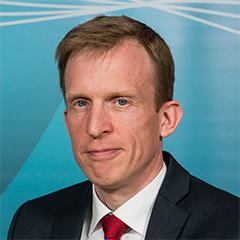
 Steven Tas, Chairman, ETNO
Steven Tas, Chairman, ETNO
Steven Tas has been chairman of the European Telecommunications Network Operators’ Association (ETNO) since January 2015. He has headed Belgacom’s regulatory department since 2008.
He joined Belgacom in 1994 and has occupied different positions within the company’s strategy division. He has been a member of the ETNO board since 2009 and a member of the board of the Centre on Regulation in Europe (CERRE) since 2010.
Tas holds a master’s degree in civil engineering and industrial management from the University of Leuven.
Steven Tas
Chairman
ETNO
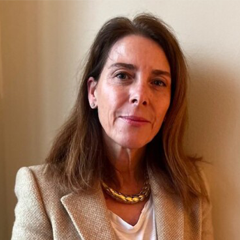
 Isabelle Mauro, Director General, GSOA
Isabelle Mauro, Director General, GSOA
Isabelle Mauro is Director General of the Global Satellite Operators Association (GSOA) that represents the interests of 70 members in the satellite ecosystem. She reports directly to their Chief Executives.
Under Isabelle’s leadership, GSOA and its member CEOs lead the effort to showcase the benefits of satellite communications for a more inclusive and secure society – vital to bridging the world’s digital divide, achieving the UN’s Sustainable Development Goals and realizing the 5G ecosystem.
Isabelle has 25 years experience in the Telecoms and Technology sector, starting at the GSMA, where she was responsible for government and international Affairs. In 2015 she moved to New York to join the World Economic Forum as Head of Information, Communications and Technology Industries, managing the portfolio for 60+ Tech companies globally and leading initiatives on inclusive and sustainable digital transformation.
Isabelle is passionate about inclusion and sustainability. She is Chair of the High-Level Advisory Board of the DigitalGoesGreen Foundation. She also sits on the Advisory Board of Women in Tech and is a member of the UNESCO Advisory Group for the Declaration on Connectivity for Education.
Isabelle holds an MSc in European Politics and Policy from the London School of Economics. She is fluent in French, English, Italian and Spanish.
Isabelle Mauro
Director General
GSOA

 Luigi Ardito, Senior Director of Government Affairs EMEA, Qualcomm
Luigi Ardito, Senior Director of Government Affairs EMEA, Qualcomm
Luigi Ardito is currently working as Director of government affairs for Europe, Middle East and North Africa at Qualcomm and drive Qualcomm spectrum and regulatory policy agenda in Europe and MENA dealing with various government entities and industry organizations. Prior to joining Qualcomm, Luigi worked for over a decade at Sony Corporation both in Japan and in the UK. Luigi gained also professional experience at France Telecom and at the Italian Public Broadcaster RAI.
Luigi has extensive experience in the Media and Telecom industry as well as the Semiconductor Industry gained through his assignments at Qualcomm, Sony, France Telecom and RAI. He holds an Electronic Engineering Degree gained at the Politecnico di Torino in Italy and a Master of Business Administration gained at the Henley Management College in the UK.
Luigi Ardito
Senior Director of Government Affairs EMEA
Qualcomm

 Lotte Abildgaard, Director Public Policy, Europe, GSMA
Lotte Abildgaard, Director Public Policy, Europe, GSMA
Currently leading public policy initiatives on the connectivity files in GSMA Europe, coordinating activities to advance the members’ positions. The topics range from open internet, roaming, IoT, and the wider debate on a proportionate framework to sustain long term investments in connectivity across Europe.
Lotte has broad experiences from the telecommunications sector working with regulators and policymakers at national, European and international level. She headed up Telenor’s Representative Office for 6 years where she positioned Telenor in various EU policy debates focusing on international relations between the EU and Asia. She also spent 3 years at Telenor’s headquarter in Oslo supporting Telenor Group in its relationship with international stakeholders.
Before joining the GSMA’s Brussels Office, Lotte was employed by a large Danish bank where she implemented new financial regulation as a senior project manager.
Lotte is a Danish native and holds a master of agricultural economics from University of Copenhagen.
Lotte Abildgaard
Director Public Policy, Europe
GSMA
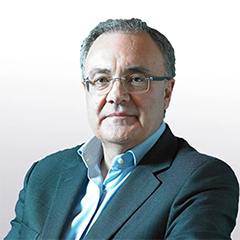
 Tobias Martinez, Chairman, EWIA
Tobias Martinez, Chairman, EWIA
Tobias Martinez is the company’s top-ranking executive (CEO) and sole director of the subsidiary Cellnex Finance Company, S.A.U. He joined Acesa Telecom (Abertis Group) in the year 2000, first as Board Member and Director General of Tradia, and subsequently of Retevisión. Before joining the Abertis Group, he headed his own business project in Information and Telecommunication Systems for more than 10 years.
He studied Telecommunications Engineering and holds a Diploma in Top Management from the IESE Business School (PADE) and a Diploma in Marketing Management from the Instituto Superior de Marketing de Barcelona (Higher Institute of Marketing of Barcelona).
Tobias Martinez
Chairman
EWIA
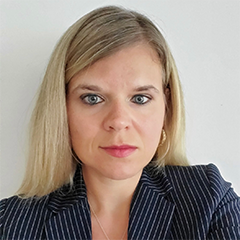
 Diane Mievis, Head of EU Telecoms & Sustainability Policy, Cisco
Diane Mievis, Head of EU Telecoms & Sustainability Policy, Cisco
Diane leads strategic public policy for Cisco in the European Union, including sustainability (climate, circular economy, skills, governance) telecoms regulation (spectrum, Wifi, 5G), trade and tax policies, as well as platform regulation. Diane started at Cisco in May 2021 and is based in Brussels.
Diane has over 12 years of diverse experience across government and technology public affairs. Prior to joining Cisco, she was Senior Trade Manager at Samsung, she also held various postings in the Cabinets of two Ministers of the Walloon Government in Belgium.
Diane Mievis
Head of EU Telecoms & Sustainability Policy
Cisco
Agenda
All times listed are in local Brussels time (CET).
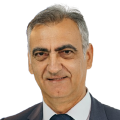
Thomas Skordas received his Diploma in Electrical Engineering in 1984 and his PhD in Computer Science in 1988. From 1988 to 1995, he worked in France as a Research Fellow and project leader in EU-funded R&D projects in the areas of Information Technology and Robotics.
In 1995, Thomas joined the European Commission as a Research Programme Officer in the Directorate General Information Society & Media (DG INFSO). Since then, Thomas has worked in various units of DG INFSO (which became DG CONNECT in 2012) dealing with ICT research in the context of the EU Research and Innovation Framework Programmes. From 2006 to 2009, he was Deputy Head of Unit for ICT Security and Trust. In 2009, he was appointed Head of the Photonics Unit and in 2014, Head of the Flagships Unit. In March 2017, Thomas was appointed Director of the Directorate for “Digital Excellence and Science Infrastructure” in DG CONNECT and in May 2022, he was appointed Deputy Director-General of DG CONNECT.

Last year’s State of the Digital Decade report highlighted concerns about the progress towards the European Commission’s 2030 connectivity targets. It found that 5G networks currently cover only 50% of the EU’s territory, with performance levels falling short of what is needed to provide advanced 5G services. Beyond 5G, the report also pointed out slower than expected progress in the adoption of technologies like AI and cloud computing, as well as the overall pace of digital transformation. This session will examine whether these concerning findings reflect the reality, and if so, identify the contributing factors and discuss the ongoing and necessary efforts to get back on track. It will start with an exclusive presentation by Connect Europe of their annual State of Digital Communications Report, offering an update on the rollout of 5G and related digital technologies across Europe. Following this, panellists will review and discuss the actions taken at the member state level since the report’s release to adjust national roadmaps and address identified gaps; and explore how stakeholders can collaborate to regain momentum and secure a leading position in the future development of advanced 5G and other related communication technologies.
- What are the most significant gaps identified in last year’s State of the Digital Decade report concerning 5G deployment and digital transformation, including in the delivery of connectivity and digitalisation to rural areas and beyond large cities?
- To what extent are these findings echoed in the Connect Europe report released today, and what picture is being painted of the overall strength of the digital communications sector in Europe?
- Is Europe falling behind other regions in the world when it comes to 5G, and if so, what (if any) impacts are being seen?
- What adjustments to national roadmaps and plans have been seen across member state levels since the release of the report? To what extent can these have an impact on delivering the ambitions that are targeted?
- What impact can the Draghi and Letta reports have on delivering new momentum to the drive towards the 2030 targets, and how could these impact measures that are being taken at both a European and member state level?
- What measures can Governments take to boost investment and competitiveness in the digital economy, and how are these strategies being implemented at the national level?
- Based on the progress that has been made to date, is there a need to redefine Digital Decade targets and KPIs? If so, then how can the move towards 5G standalone and 5G advanced be reflected in any new targets that are being set?

Luca Bertuzzi is a tech journalist specialized in digital policy and European affairs. He is a Senior AI Correspondent at MLex. He previously worked at EURACTIV as Technology Editor, overseeing an international team of four reporters based in Brussels, Paris, and Berlin. For his reporting, Luca has been awarded the 2024 AI Policy Leader Award from the Center for AI and Digital Policy Europe. He has collaborated with la Repubblica, Tagesspiegel, and Tech.eu, among other publications. You can follow Luca’s work on X and LinkedIn.


Alessandro Gropelli is the Director General of Connect Europe, the voice of the leading providers of connectivity networks and services in Europe. Alessandro is a technology and political affairs leader, trained in Europe and overseas. At Connect Europe, he leads the Team and represents the Association. He is also a Board member of GeSI, the Global Enabling Sustainability Initiative.
Alessandro previously served at ETNO, the former association representing leading telecom operators, in different positions. In the period 2018-2024 he was Deputy Director General: in this capacity, in 2023-2024, he curated the transformation project ETNO+, which resulted in the launch of Connect Europe. In 2023 he was named in the top 10 of Politico’s Power40 list as one of the most influential operatives in European affairs. In 2016-2018 he served as Director of Communications of ETNO and, back in 2013-2016, he was Head of Communications and Media.
Before joining the Association, between 2010 and 2013, Alessandro was European affairs advisor at Vodafone Group and vice-Chairman of the m-commerce Working Group of mobile operators’ association GSMA Europe. Prior to that, in 2009, he also worked in the Public Affairs team of Telecom Italia and as a public relations officer at the European Parliament.
Alessandro holds an Executive MBA from Copenhagen Business School (2021) and finalised executive education courses at the MIT (2018) and Berkeley Haas (2016). He graduated in public management from Bocconi University in Milan (2009) and concluded an education programme at the Hitotsubashi University of Tokyo (2008). He speaks English, Italian and French.


ALEKSANDER SOŁTYSIK is an attaché for the telecommunication sector in the Permanent Representation of Poland to the European Union and represents Ministry of Digital Affairs in the Council of the European Union. The main responsibilities are matters regarding radio spectrum, gigabit infrastructure, artificial intelligence and Digital Decade. Currently he is the Chair of the Radio Spectrum Policy Group – a high-level advisory group that assists the European Commission in the development of radio spectrum policy. He is also an outgoing co-rapporteur of the RSPG Working Group on Peer Review and Member State cooperation on authorizations and awards, which is responsible for annual reports on the implementation of the art. 35 of the European Electronic Communications Code. Aleksander was the Head of International Telecommunication Unit at the Ministry of Digital Affair, engaged in the International Telecommunication Union’s and CEPT matters, mainly focusing on the preparations for the World Radiocommunication Conferences. He was a Kosciuszko Foundation scholar at the Hoover Institution, Stanford University and hold a PhD degree from the Jagiellonian University in Cracow.


More information available shortly.


Agustín Díaz-Pinés is a telecommunications expert at DG Competition, European Commission, dealing with mergers in the telecommunications, IT and media sectors.
He previously worked as an economist and policy analyst at the Organisation for Economic Co-operation and Development (OECD, Paris, 2009–2015) in the Digital Economy Division, including projects on international mobile roaming, convergence, and various country studies (Mexico, Colombia).
He started his career at the Spanish government (State Secretariat for Telecommunications and the Information Society), involved in national and European ICT policy. Mr. Díaz-Pinés holds a Masters in Telecommunications Engineering from the Madrid University of Technology and a PhD in Management/Economic Sciences from École Polytechnique/Paris-Saclay in Paris (France).


Maurice Patrick is a Managing Director within European Telecommunication Services Equity Research, coordinates Barclays’ Telecoms Equity Research globally and has 20 years experience in the Telecoms industry. Maurice joined Barclays in 2009. Prior to this, he was an Executive Director at JPMorgan and at Bear Stearns. Maurice has worked as an equity analyst since 2002. Prior to this, he worked in the Telecoms industry at BT and O2. Maurice has an MBA from the Cranfield School of Management, an MSc in Telecommunications from the University of London, and a BSc in Physics and French from the University of Bristol.


Chris leads the EU Public Policy team at Cisco, with a focus on all things cybersecurity and data protection. Chris heads the Brussels Office for Cisco’s Government Affairs team, responsible for engagements with the EU institutions.
He joined the Government Affairs team in Europe, Middle East, Africa in 2008. Chris has held multiple industry leadership roles. He is currently a Member of the Board of the European Internet Forum (EIF) and of DIGITALEUROPE.
Prior to Cisco, he was responsible for campaign strategies and digital economy policy work at DIGITALEUROPE. He has been in Brussels since 2003, initially as an Assistant to a Member of the European Parliament, working on internal market and legal affairs issues. He studied Philosophy, Politics and Economics at Oxford University.


Jakob Greiner joined Deutsche Telekom in 2015. He is leading the group’s overall engagement towards the European institutions, international organizations & trade associations. Prior to that, Jakob worked as legal counsel for Apple in Germany and as political advisor to a Member of the European Parliament. Jakob is a qualified German lawyer, he holds a law degree from Ludwig-Maximilian-University Munich and a PhD in European institutional law from the University of Bayreuth.

Last year, the European Commission published their whitepaper ‘How to master Europe’s digital infrastructure needs?’, with the aim of setting a blueprint to deliver the connectivity networks of the future and achieve a true Digital Single Market. It is now down to the new Commission to look at how to take this forward and at whether to proceed with the delivery of the ‘Digital Networks Act (DNA)’ that was proposed. Against this backdrop, this ‘speed pitch’ session will hear from different stakeholders on what they see as the key priorities for the new Commission when it comes to 5G and other key technologies, and more broadly on the path forward in order to deliver the future “Connected Collaborative Computing” (the 3Cs). It will look both at the whitepaper proposals and beyond and gauge opinion on the best way forward for Europe to seize the opportunities that exist and avoid being left on the sidelines of digital evolution.
Participants will have 5 minutes each to deliver their ‘pitch’ to the new European Commission. They will each be asked to address 2 key questions:
- What should be the key priorities for the new Commission in accelerating the deployment and adoption of 5G across Europe?
- What broader roadmap would you like to see for 5G and other related technologies, and to what extent do you feel that the development of a new “Connected Collaborative Computing” (the 3Cs) ecosystem should be a legislative priority?
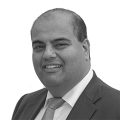
Amit specialises in advising on complex wireless transactions and strategy projects, including supporting mobile operators with spectrum valuation and regulators with the development and implementation of spectrum policy.
Amit has over 25 years of experience advising fixed and mobile operators, regulators/government bodies, financial institutions and equipment manufacturers on commercial, technical and regulatory issues. He has supported several multi-billion dollar M&A and debt financing transactions and has led numerous high-profile studies in the area of radio spectrum policy. Amit brings a global perspective to his work, having undertaken projects for clients in Europe, Asia, the Middle East, Africa, and the Americas.
Amit holds an M.Sc. in Radio Frequency and Communications Engineering from the University of Bradford, UK and an M.B.A. from the University of Warwick, UK.


Miguel González-Sancho is since March 2024 Head of the Unit, Future Connectivity Systems at the European Commission, responsible for EU policy and funding for advanced digital communication networks, including telco-cloud-edge convergence, 5G/ 6G research and deployment (in close coordination with the “Smart Network Systems” Joint Undertaking), and submarine cables resilience.
He was previously during 2,5 years Executive Director of the “European Cybersecurity Competence Centre” (an EU body managing cybersecurity research and deployment projects, in coordination with the European Commission and EU Member States). He has also been working for over 20 years at the European Commission on EU digital policy, legislation and funding, notably heading units for “Cybersecurity”, “eHealth” and “Administration and Finance” at Directorate-General “CONNECT”.


Laszlo Toth is the Head of Office of GSMA Europe, which is the European arm of the GSM Association – the global body that represents the worldwide mobile communications industry. In this capacity Laszlo is responsible for the day-to-day running of the GSMA’s Brussels office. He works closely with members to facilitate coordinated advocacy efforts at the EU level in order to create a policy environment that maximizes the mobile industry’s ability to invest in infrastructure and drive economic growth.
Laszlo started his professional career working at telecoms operators. Prior to joining GSMA in 2011, he spent nine years at the Hungarian public administration, including spells at the Ministry responsible for ICT and at the national telecoms regulator. Laszlo has an MSc. in economics and holds a degree in computer sciences.


Maarit Palovirta is the Deputy Director General of Connect Europe, the voice of the leading providers of connectivity networks and services in Europe. She leads the association’s policy and organisational strategy, overseeing its work on a variety of policy and regulatory topics as well as its international outreach. She is also a Board member of CTAM Europe.
Before joining the Association as a Director of Regulatory Affairs in 2019, Maarit was a Senior Manager of European Affairs at the Internet Society where she acquired strong experience in internet development as well as extensive links with global internet and tech stakeholders. Prior to that, she engaged with governments across EMEA as a public sector business development manager at Cisco Systems for six years. Maarit has also developed a strong service-oriented, hands-on profile acquired in leading public affairs consultancies in Brussels.
Maarit has an academic background from the College of Europe, London School of Economics, King’s College London and SciencesPo Paris and has completed executive education courses at IESE. She speaks Finnish, English and French.


Isabelle Mauro is Director General of the Global Satellite Operators Association (GSOA) that represents the interests of 70 members in the satellite ecosystem. She reports directly to their Chief Executives.
Under Isabelle’s leadership, GSOA and its member CEOs lead the effort to showcase the benefits of satellite communications for a more inclusive and secure society – vital to bridging the world’s digital divide, achieving the UN’s Sustainable Development Goals and realizing the 5G ecosystem.
Isabelle has 25 years experience in the Telecoms and Technology sector, starting at the GSMA, where she was responsible for government and international Affairs. In 2015 she moved to New York to join the World Economic Forum as Head of Information, Communications and Technology Industries, managing the portfolio for 60+ Tech companies globally and leading initiatives on inclusive and sustainable digital transformation.
Isabelle is passionate about inclusion and sustainability. She is Chair of the High-Level Advisory Board of the DigitalGoesGreen Foundation. She also sits on the Advisory Board of Women in Tech and is a member of the UNESCO Advisory Group for the Declaration on Connectivity for Education.
Isabelle holds an MSc in European Politics and Policy from the London School of Economics. She is fluent in French, English, Italian and Spanish.


Kevin Robinson is a 15-year veteran of Wi-Fi Alliance and became CEO of the organization in October 2022. Kevin is focused on securing sufficient, harmonized global Wi-Fi spectrum, deepening engagement and cohesion across the Wi-Fi ecosystem, and evolving the organization to ensure it remains as nimble as the industry it serves.
Serving as Wi-Fi Alliance’s Vice President of Marketing for the last seven years, Robinson has led many of the organization’s most transformative initiatives and has been a leading ambassador for promoting WiFi and WiFi Alliance as a collaboration forum worldwide. Kevin oversaw branding, communications, market development, product management, program marketing, and public relations for the organization. He was also responsible for driving the development of Wi-Fi Alliance corporate strategy.
Before joining Wi-Fi Alliance in 2008, Kevin enjoyed working with early-stage technology startups on business strategy consulting and technology market research. Kevin is a veteran of the United States Army, where he served as a Captain in the Infantry. Kevin holds a BS in Computer Science from the United States Military Academy at West Point and an MBA with a specialization in Entrepreneurship from The University of Texas at Austin. He lives with his family in Austin, Texas.


Luigi Ardito is currently working as Director of government affairs for Europe, Middle East and North Africa at Qualcomm and drive Qualcomm spectrum and regulatory policy agenda in Europe and MENA dealing with various government entities and industry organizations. Luigi is also part of the Global Spectrum Team at the GSA (the Global mobile Suppliers Association).
Prior to joining Qualcomm, Luigi worked for over a decade at Sony Corporation both in Japan and in the UK. Luigi gained also professional experience at France Telecom and at the Italian Public Broadcaster RAI.
Luigi has extensive experience in the Media and Telecom industry as well as the Semiconductor Industry gained through his assignments at Qualcomm, Sony, France Telecom and RAI. He holds an Electronic Engineering Degree gained at the Politecnico di Torino in Italy and a Master of Business Administration gained at the Henley Management College in the UK.

Panel will consist of stakeholders listed above
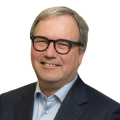
Robert Mourik is a BEREC Vice-Chair in 2024 and will assume the role of BEREC Chair for 2025 on 1 January. He joined the Commission for Communications Regulation (ComReg) as Commissioner in 2019 and has almost thirty years’ experience in the telecoms sector, as an industry executive and as a Government official. Prior to joining ComReg, he worked for Cubic Telecom, a new entrant in the automotive IoT space, where he was responsible for all wholesale activities. Robert spent almost 10 years in Telefonica as the European Regulatory Strategy Director at their corporate HQ in Madrid and as Strategy Director in Ireland. He also worked for Vodafone Group, as its head of their Brussels Office and in the regulatory department in Newbury, UK. In 1991, Robert began his career in the Dutch Department for Transport and Telecommunication, and from 1994 until 1999, he served as Telecom Attache at the Netherlands’ Permanent Representation in Brussels. He was a Member and Chair of the Council Telecoms Working Group in 1998, when the first telecom regulatory package was adopted. Robert was born in the Netherlands and studied Economics and Public Policy at the Erasmus University in Rotterdam and the University of Hull (UK).

One of the biggest challenges faced when it comes to rolling out 5G networks in Europe has been securing access to the necessary funding and investment. In the face of falling revenues and profits, Europe’s largest telecom groups have been calling for support in order to help them invest the billions that are required to hit key 5G rollout targets. This session will look at the investment environment that is currently seen in Europe and whether changes are indeed needed in order to keep 5G on track. With the recent Letta and Draghi reports both highlighting sector consolidation as a way of boosting investment, it will discuss arguments around this and how it could impact the ability of operators to reach the scale needed to invest in the networks of the future. It will also discuss whether changes need to be made in order to create a regulatory level playing field for MNOs, big tech, and other stakeholders. Finally, it will look at some of the different public funding instruments that are available and at how the impact of these can be maximised and focused in the right areas to make maximum impact.
- Where does Europe sit compared to other regions around the world when it comes to the levels of private and public funding that is being allocated towards 5G deployment?
- Is fragmentation of the mobile sector impacting the ability of operators to reach the scale to invest in network rollout? To what extent could increased in-market consolidation address the investment shortfall and improve European competitiveness?
- What were the conclusions of the recent Letta and Draghi reports in this area, and how can consolidation be balanced with the need to ensure a competitive telecoms market?
- Where do the discussions currently lie around the delivery of a regulatory level playing field between mobile operators and big tech, and what are likely to be the next steps in this area?
- What impact has been seen from public funding mechanisms such as Horizon, CEF, and others; and how are these being linked with policy goals and objectives (for example, sustainability, security) to ensure that the required funding is directed in the right places?
- What ultimately is the best and fairest way forward to find the required funding to continue to rollout and upgrade networks and secure Europe’s digital future?

An engineer with broad experience in the telecoms and technology sectors, Andy has a particular interest in spectrum (auctions and valuation) and the impact of new technology (5G, AI, IoT and Big Data). He brings a deep understanding of both the industry and regulatory perspectives around the world through his role as Head of Policy for the GSMA and as Director of Spectrum Policy at Ofcom.
Andy spent 12 years at Vodafone, where he held various senior product development and corporate strategy roles. As Head of Spectrum, he was responsible for managing spectrum policy and auctions across the Vodafone Group. He led over twenty spectrum auctions around the world (including Turkey, Italy, Germany, India, Spain, Italy, Greece, Australia, Romania, NL and UK) from strategy/business case development to Plc. Board level sign-off and in-country implementation.
He was formerly a management consultant, has launched an internet payments and encryption company and worked as a research scientist at Sharp Laboratories of Europe and Sony Corporation, based in Japan. He has a doctorate in Engineering Science from Oxford University and an MBA. He is a frequent invited speaker at international conferences.


Professor Konstantinos Masselos has been appointed as the President of the Hellenic Telecommunications & Post Commission (EETT) in February 2018.
He has been elected as President of the Body of European Regulators for Electronic Communications (BEREC) for 2023 and also, Vice-President for 2022 and 2024. Moreover, he served as Vice-President of BEREC in 2019.
He is Professor in the Department of Informatics and Telecommunications of the University of Peloponnese and he served as Rector of the above University during the period 2012-2017. From 2005 to 2008, he was Lecturer in the Department of Electrical and Electronic Engineering at the Imperial College London. Also, during the period 2010-2016 he was an Honorary Lecturer in the same Department.
During the period 2001-2004, he worked in the electronic communications industry. Since 2005 he has been collaborating as an expert with various units of the European Commission. Also, he was a member of the Scientific Committee of the European Cooperation in Science and Technology (COST) from 2015 to 2017.


Professor Konstantinos Masselos has been appointed as the President of the Hellenic Telecommunications & Post Commission (EETT) in February 2018.
He has been elected as President of the Body of European Regulators for Electronic Communications (BEREC) for 2023 and also, Vice-President for 2022 and 2024. Moreover, he served as Vice-President of BEREC in 2019.
He is Professor in the Department of Informatics and Telecommunications of the University of Peloponnese and he served as Rector of the above University during the period 2012-2017. From 2005 to 2008, he was Lecturer in the Department of Electrical and Electronic Engineering at the Imperial College London. Also, during the period 2010-2016 he was an Honorary Lecturer in the same Department.
During the period 2001-2004, he worked in the electronic communications industry. Since 2005 he has been collaborating as an expert with various units of the European Commission. Also, he was a member of the Scientific Committee of the European Cooperation in Science and Technology (COST) from 2015 to 2017.

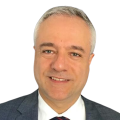
Franco Accordino is the Head of the “Investment in High-Capacity Networks” unit within the European Commission’s Directorate-General for Communications Networks, Content and Technology (DG CONNECT). The unit is responsible for the deployment and take-up of very high-capacity broadband networks underpinning the Digital Single Market and promoting the European Commission’s vision and policy actions to turn Europe into a Gigabit Society by 2025.
Prior to this role, Franco was the Head of “Knowledge Management and Innovative Systems” unit providing support to DG CONNECT policies and operations and delivering advanced solutions for the European Commission’s internal take up in such fields as data analytics, web platforms (futurium) and artificial intelligence.
Before becoming Head of Unit, Franco led the Task Force “Digital Futures”, a participatory foresight project aiming to devise 2050’s visions and policy ideas underpinned by the digital transformation.
During his experience at the European Commission, Franco worked as a scientific and policy officer and Director’s Assistant in such fields as Future and Emerging Technologies, Future Internet, High-Performance Computing, Grid and Cloud technologies, Trust and Security.
Before joining the European Commission, he worked at the ETHZ/CSCS National Supercomputing Centre of Switzerland and at the National Research Council of Italy where he conducted research on formal methods, languages and tools for complex systems specification.
He has a long-standing experience in several information technology fields, including formal methods and software engineering, cloud and distributed systems, network centric operating systems, web platforms, AI, machine learning and data analytics.

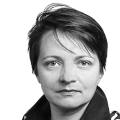
Veronica is responsible for Cullen International’s regulatory training portfolio, developing and executing training and capacity building programmes for industry stakeholders, policymakers and regulators across the globe.
With over 20 years of professional experience, she has extensive knowledge of the implementation of the EU regulatory framework across Europe.
Before joining Cullen International, Veronica worked for Ericsson consulting practice in Stockholm.


Dragan Jovanovic is the Director Public Affairs & Communications for ATC Europe. He is responsible for ATC Europe’s regulatory strategy, governmental relations practice and communications practice.
Before joining ATC Europe, Dragan was Chief Economist for Vantage Towers AG, leading the company’s economics practice and policy and regulatory analysis. Prior to that, Dragan worked at Deutsche Telekom AG as Senior Manager Public & Regulatory Affairs and at the European Commission (DG COMP, Chief Economist Team) as an economist dealing with EU merger and antitrust cases.
Dragan holds a PhD from Heinrich-Heine University Düsseldorf in Economics.


Luigi Ardito is currently working as Director of government affairs for Europe, Middle East and North Africa at Qualcomm and drive Qualcomm spectrum and regulatory policy agenda in Europe and MENA dealing with various government entities and industry organizations. Luigi is also part of the Global Spectrum Team at the GSA (the Global mobile Suppliers Association).
Prior to joining Qualcomm, Luigi worked for over a decade at Sony Corporation both in Japan and in the UK. Luigi gained also professional experience at France Telecom and at the Italian Public Broadcaster RAI.
Luigi has extensive experience in the Media and Telecom industry as well as the Semiconductor Industry gained through his assignments at Qualcomm, Sony, France Telecom and RAI. He holds an Electronic Engineering Degree gained at the Politecnico di Torino in Italy and a Master of Business Administration gained at the Henley Management College in the UK.

As the deployment of 5G networks continues to accelerate and connected devices becomes more embedded in our everyday lives, so do the associated security risks. This discussion will explore the measures that have already been taken by both connectivity providers and regulators to mitigate risks, and looking forward, it will discuss how cyber security challenges are evolving and what needs to be done to secure the next-generation networks.
- What specific security concerns are raised by 5G, and how are regulators and connectivity providers working together to develop sophisticated solutions in order to tackle these?
- What emerging threats, attack vectors, and trends are being seen as we move towards the next generation of connectivity – 5G Advanced and beyond?
- What updates may need to be made to existing regulations and cyber frameworks to cope with these?
- How is the emergence of new technologies such as quantum communications and AI affecting both sides of the cyber security battleground (both in terms of enabling smarter, more complex, and sophisticated threats from cyber criminals) and also aiding in the development of more proactive and adaptive security measures?
- How important is sharing of information, threat intelligence, and best practice in order to address the evolving threat landscape? To what extent is this being seen both at a European and global level, and can more be done?

Iva Tasheva is the co-founder and cybersecurity lead at CYEN, an award-winning consultancy established in Brussels in 2018. Cyen is recognised for providing pragmatic, business success-oriented cybersecurity risk and compliance solutions that are strongly tailored to its client’s needs. Cyen specialises in the financial, manufacturing, public and digital sectors.
In addition to her work for CYEN, Iva is an appointed Member of the EU Cybersecurity Agency (ENISA) Ad-Hoc Working Groups on Enterprise Security and on Cloud Security (Certification) and a Board Member of Women4Cyber Belgium.
Her expertise is recognised, being winner of the BeNeLux Outstanding Female Security Professional Award (OSPA) 2024, Belgium Cybersecurity Personality of the Year 2022, and listed ‘35 under 35’ by Santander/CODIB. She is a published author, including authoring the Bulgarian Guide for SME Cybersecurity, and a regular speaker. Iva holds an MBA from KULeuven and a Master in Cybersecurity degree from the New Bulgarian University. She is a certified ISO 27001 Lead Implementer, ISO 27799 Lead Manager, and DORA Senior Lead Manager.
Follow Iva Tasheva (or CYEN) on LinkedIn for updates on cybersecurity policy and implementation. Follow ‘CYEN – Cybersecurity’ on YouTube for monthly cybersecurity top experts’ interviews.

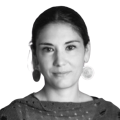
Mrs Svetlana Schuster is Acting Head of Unit Cybersecurity technology and capacity building at DG CONNECT, European Commission. She joined the European Commission in October 2011 and worked in the area of implementation of the EU regulatory framework on electronic communications and later on developing EU cybersecurity policy and its implementation. Mrs Schuster is a fully qualified German lawyer, graduated from Europa-Universität Viadrina Frankfurt/O., Germany and Vrije Universiteit Brussels (LL.M in International and European law).


Ms Katja Kmet Vrčko is a lawyer with more than 20 years of experience in electronic communications. Prior to her current role as Advisor to the Director for International Affairs, she was heading the Inspection and Security Department for 9 years. She is an active member of different European expert working groups in the cybersecurity field. Since 2019 she is a Co-Chair of the BEREC’s Cybersecurity and Resilience Working Group, which cooperates with the Commission, NIS 5G Cooperation Group, ENISA and ECASEC. For the second mandate, she was appointed as a BEREC representative to the ENISA’s Advisory Group.

Similarly to all other industries and sectors around Europe, the telecommunications sector is being challenged to reduce the carbon footprint of their operations. Against this backdrop, sustainability as well as performance is becoming a big part of decisions that are being taken by connectivity providers and policymakers when it comes to 5G, and pressure is increasing from all sides to both ensure that systems are in place to monitor the environmental impact of 5G networks and that efforts are then made to ensure this impact is minimised throughout the 5G value chain. This session will examine the strategies that are currently being seen around Europe and the way in which emerging new technologies and thinking can play a part moving forward to increase the energy-efficiency of 5G rollout and operation. It will cover efforts at both European and member-state levels to track emissions in the connectivity ecosystem and develop indicators to measure 5G networks’ environmental footprint, examining progress on a European ‘Code of Conduct’ for sustainable electronic communications, which is due to be published by the end of 2025.
- How are technology advancements, energy-saving solutions, and intelligent management being applied to increase sustainability across the 5G value chain?
- What work is being done at a European and member state level to map emissions across the connectivity ecosystem and to develop indicators to measure the environmental footprint of 5G networks? Is a clearer picture starting to emerge on which areas are having the biggest impact when it comes to greenhouse gases and on where specific policy actions may need to?
- What is the current state of play with regards to the development of a European ‘Code of Conduct’ for the sustainability of electronic communications networks? How could this fit in the context of existing Codes of Conduct focusing on Data Centres and Broadband Equipment, and also broader legislative programmes, such as the EU Green Deal?
- How can it be ensured that there is not a disconnect between sustainability targets and licencing conditions, particularly when it comes to obligations to rollout networks in rural, sometimes off-grid, regions?
- As we move towards 6G, how can we ensure that we build on the progress that is already being seen in this area and that sustainability is at the heart of the rollout of new networks?

Having graduated from her PhD in Theoretical Physics, Sapphire joined Aetha Consulting as a Business Analyst.
Their work has allowed her to continue practicing problem-solving and analytical thinking on a day-to-day basis, and she loves working with her intelligent and engaged client teams. Tackling challenging technical ideas with internal project teams across Aetha’s flat hierarchy, combined with being given responsibility for delivering results from a very early point in my career, means that her role at Aetha is a fulfilling way to deliver meaningful impacts for leading TMT players.


Johannes Theiss heads policy coordination within the Future Connectivity Systems Unit in the European Commission’s Directorate‑General for Communications Networks, Content and Technology (DG CNECT). This involves coordinating the work on sustainable telecommunications networks. Johannes joined CNECT from the Directorate-General for Competition (DG COMP), where he had worked on Commission priorities and strategic coordination, notably in the digital area. Before joining the Commission, Johannes held various positions in the private sector, notably at Vodafone, the German Broadband Association, consulting, and academia. He holds two master degrees in European studies (College of Europe, Bruges) and political science (University of Bamberg, Germany).


Yvonne Finger is an economist with extensive experience in the field of energy regulation and digitalization issues. Currently, as a head of unit in the digitalization department at the Bundesnetzagentur (German Federal Network Regulatory Authority), she leads initiatives aimed at advancing digitalization within small and medium-sized enterprises (SMEs) and explores sustainability aspects of telecommunications networks and digitalization.
Before assuming her current role in 2020, she worked for nearly 16 years in the energy regulation department of the Bundesnetzagentur, where she specialized in regulatory issues, including the design and implementation of tendering procedures for renewable energy projects. She further developed expertise in the field of energy efficiency during her time as a seconded national expert at the European Commission, Directorate-General for Energy from 2008 to 2012. In her earlier career, she worked in the research department of an international management consultancy.


Azeddine Gati received the Ph.D. degree from the University of Pierre and Marie Curie (Paris VI), Paris, France, in 2000. Since 2001, he has been with Orange Gardens, France, where he has been involved in research in the fields of applied electromagnetic for telecommunications systems. He is also an Engineer in telecommunication and signal processing. From 1997 to 2001, he was engaged in studying circuit optimization and electromagnetic (EM) computational methods. In 2001, he has been involved in research on radio planning. In 2007, he leads research projects on sustainable development, including EMF, body area networks, wireless network planning tools, and energy in information, communication technology, and service solutions (ICT). Since 2011, he has been leading a research program dedicated to energy efficiency of wireless and fixed telecom systems and is currently responsible of a department dedicated to wireless networks in Orange Labs. He is currently involved in celtic plus SooGreen Project and the French research project AN spatial modulation. He has coauthored more than 30 papers and 100 international conferences. Dr. Gati is a member of the Union Radio Scientifique International, France. He is a Senior Member of SEE. He has been involved in European Celtic plus OPERA-Net 1 & 2 projects and the Vice-Chair of the wireless group in GreenTouch (ww.greentouch.org). He is currently involved in Celtic OPERA-Net 1 & 2 and SooGreen projects and was elected as Vice-Chair of the technical committee leading the GreenTouch project.


Simon Hinterholzer is a renewable energy engineer and has been working as a researcher at Borderstep Institute since May 2017. He investigates both the positive and negative sustainability impacts of digitalization as part of research projects and commissioned studies.
One focus of his work is on the sustainability assessment of digital infrastructures, especially data centres. In this area, he has conducted various research projects at Borderstep for federal ministries and the federal state of Hessen and has also prepared various studies for digital associations and institutions like Bitkom or the German Energy Agency and the European Commission. Besides those, he as a long research/publication track in the field of data centers and sustainability. The figures on the energy use of data centers in Europe and Germany from these references are used by governments in Europe and Germany as a basis for their political measures, for example currently in the Energy Efficiency Directive and in the European Commission’s data center targets.


Janette is one of Analysys Mason’s senior spectrum experts, with 25 years’ experience in radio engineering, wireless technologies, spectrum policy and spectrum management. Janette joined Analysys Mason in 2001, having previously worked for the UK Radiocommunications Agency (now Ofcom).
Janette’s expertise lies in mobile, wireless and broadband technologies and markets and her consulting experience includes advising on market developments in the wireless sector, wireless technology evolution, wireless business modelling, spectrum valuation, spectrum strategy, competition and regulation issues in the wireless market. She has worked with a wide range of public- and private-sector clients including national regulators, government departments, network operators, wireless industry trade associations, equipment vendors and telecoms users.
Her recent focus has been on 5G mobile and she has authored several published reports, including a study for Qualcomm and Ericsson on costs and benefits of 5G deployment in Europe, a study on 5G millimetre-wave deployment in Europe, reports for US industry body CTIA comparing 5G readiness in several world markets and a study on the benefits of cellular V2X technology for the 5GAA. Janette holds a BEng in Electronic Engineering from the University of Edinburgh, and an MSc in Radio Communications from the University of Bradford.


ALEKSANDER SOŁTYSIK is an attaché for the telecommunication sector in the Permanent Representation of Poland to the European Union and represents Ministry of Digital Affairs in the Council of the European Union. The main responsibilities are matters regarding radio spectrum, gigabit infrastructure, artificial intelligence and Digital Decade. Currently he is the Chair of the Radio Spectrum Policy Group – a high-level advisory group that assists the European Commission in the development of radio spectrum policy. He is also an outgoing co-rapporteur of the RSPG Working Group on Peer Review and Member State cooperation on authorizations and awards, which is responsible for annual reports on the implementation of the art. 35 of the European Electronic Communications Code. Aleksander was the Head of International Telecommunication Unit at the Ministry of Digital Affair, engaged in the International Telecommunication Union’s and CEPT matters, mainly focusing on the preparations for the World Radiocommunication Conferences. He was a Kosciuszko Foundation scholar at the Hoover Institution, Stanford University and hold a PhD degree from the Jagiellonian University in Cracow.



In his recent book ‘The End of Telecoms History’, William Webb argued that “those who are well connected, with good home broadband and good mobile coverage – even if it is only 4G – have all the connectivity that they need.” He predicts that that mobile data usage will “plateau at around 15-20 Gbytes/user/month” and that data volume growth will cease in 2027. These findings were disputed in a follow-up paper from Stefan Zehle, who highlighted a large variation in data usage across different countries and markets and noted that “in many markets mobile data usage already exceeds 20 Gbytes/user/month with significant growth rates”, arguing that this discrepancy is often linked to price and quality of service. This fireside chat will hear from both parties on their relevant perspectives, and explore whether this is indeed the end of telecoms as we know it, or whether as we move towards 5G advanced and 6G, the demand for faster networks, more fibre and the next generation of mobile technology is here to stay.

Yasmine Frizlen is an Economist at NERA, a leading economic consultancy that has been involved in spectrum policy for over 35 years. Yasmine has supported regulators and private companies on all five continents, with projects involving the design and implementation of spectrum auctions, valuation and pricing of radio spectrum, legal disputes involving spectrum, and studies on the application of economics to spectrum management. She co-authored a chapter on spectrum pricing in NERA’s new book: Round-by-Round: Learnings form the First 35 Years of Spectrum Auctions.
Yasmine holds a MSc in Economics degree from the London School of Economics, United Kingdom.


William is an independent consultant providing advice across all telecommunications matters. He was one of the founding directors of Neul, a company developing machine-to-machine technologies and networks, which was formed at the start of 2011 and became CEO of the Weightless SIG, a body standardizing IoT technology. Prior to this William was a Director at Ofcom where he managed a team providing technical advice and performing research. He has worked for a range of communications consultancies and spent three years providing strategic management across Motorola’s entire communications portfolio, based in Chicago. He was IET President 2014-2015.
William has published 19 books, 100 papers, and 18 patents. He is a Fellow of the Royal Academy of Engineering, the IEEE and the IET, a Visiting Professor at Southampton University and a Board Member of the Marconi Society. He has been awarded multiple honorary doctorates by the UK’s leading universities and in 2018 was awarded the IET’s prestigious Mountbatten Medal for technology entrepreneurship.


Stefan Zehle is the MBA, Chairman, and CEO of Coleago Consulting. He has 28 years of experience in telecoms gained as a Director of a Mobile Operating company and as a specialist telecoms management consultant. He has worked in developed markets in Europe, Canada, the US, and also in emerging markets in the Middle East, Africa, and the Far East. As the 2nd person on the ground, he played a pivotal role in launching Nedjma, the 3rd Algerian mobile operator. Stefan has worked on over 70 mobile licence bids and spectrum valuation projects. Co-author of the Economist’s Guide to Business Planning.

Key connectivity goals were set as part of the EU’s Digital Decade strategy, targeting 5G coverage for all urban areas and transport paths by 2025; and in all populated areas by 2030. What isn’t completely clear, however, is what the definition of 5G relating to this is, and this was picked up in a recent European Commission report, which recommended a need to ‘clarify the definition of “5G coverage” and its relationship to Quality of Service, to provide clearer policy goals which ensure that 5G economic and societal benefits are delivered.’ Against this backdrop, this session will explore this exact point and look at how 5G should be defined and the level of coverage, speed, and service that we should be looking to achieve. It will discuss the different strategies and technologies that provide options to deliver 5G connectivity in different scenarios and regions and where the balance lies to ensure both societal and economic benefits of 5G are met.
- What are we actually trying to achieve with the 5G coverage targets that have been set as part of the Digital Decade strategy, and what definition of 5G should be used in order to deliver on this?
- What priorities should be set in order to meet specific connectivity requirements in different scenarios, such as transport corridors, industry/business parks, and rural settings?
- Should we only be looking to deploy high-speed ‘optimal’ 5G using mid-band spectrum (eg 3.6 GHz); or should the definition of ‘coverage’ should include connectivity using the sub-1 GHz bands where the 5G experience arguably closely resembles 4G?
- What role can NTNs and other emerging technologies be part of this ‘mix’ to deliver on the 5G targets beyond the main urban and populated areas?
- Is it realistic to achieve ubiquity and hit the targets using high-speed 5G, or is there a middle ground that maximises the societal and economic benefits of 5G across all regions and delivers this at an affordable price?
- Taking things one step further, is there actually a need for 5G to be rolled out across the entire region, or is there an argument that initially it is more important to focus more on coverage rather than speed and ensuring ubiquity across Europe, whether it be through 4G, 5G, or even, in some cases, previous generations?

Matthew Newman is the global chief correspondent for MLex and writes about data protection, privacy, telecoms, cyber security, and artificial intelligence. Matthew began his journalism career in 1991 in community newspapers. He worked as a reporter in Riga, Latvia, in 1993 and then moved to Chicago, where he covered local news. In 1995, he became a personal finance reporter for Dow Jones Newswires, and was then transferred to Brussels in 1999. He specialized in EU regulatory affairs, including trade and telecom issues. He began covering competition for Bloomberg News as an EU court reporter in 2004. In 2010, he was named spokesman for Viviane Reding, the EU’s justice commissioner. In January 2012, he helped launch the commission’s proposal for overall data protection rules. He began working at MLex in April 2012 and has covered mergers, antitrust, and state-aid cases. He spent a year studying French, history, and communications in Grenoble, France, in 1988 and 1989 and is a graduate of Boston University with degrees in history and journalism. He earned a diploma in competition law from King’s College in 2016.


More information available shortly.


Dr. Tassos Lyratzis is an Electrical & Computer Engineer and holds a PhD in the field of Telecommunications & Computer Networks (1994). During his PhD studies, he worked as a specialist in Telecommunications in various European research projects.
He is currently working in the Hellenic Telecommunications and Post Commission (EETT) since 2001, in the Spectrum Directorate. He has been the Head of the Spectrum Management Department (2003-2006) when EETT was involved in the Spectrum Management of the Olympic Games of Athens in 2004. Since 2011 he is Head (Director) of Spectrum Directorate of EETT.
He participates in international activities in CEPT (ECC, WGFM) as well as in European Union groups like the Radio Spectrum Committee (2003 – 2006), and the Radio Spectrum Policy Group (2011 – today). Since 2016 he has been co-chair of the RSPG sub-Groups working on 5G and 6G topics.




Rafael Gonzalez is a Telecommunications expert with over 20 years of international experience, having worked in more than 25 countries worldwide on behalf of American, European and Middle East Governments, Regulatory Agencies, Investors and Telecom Operators.
In 2019 he joined MedUX, the leading Internet Quality of Experience (QoE) Testing and Monitoring Company, where he currently manages the EMEA Region after leading Marketing, Product and Strategy initiatives.
Previously, Rafael was Partner at Axon Partners Group, a specialist management & strategy consulting company for the Information and Communications Technology (ICT) sector. He managed the Consulting division in the Americas and the Caribbean where he helped industry stakeholders define sound policy frameworks and provide intellectual leadership on pressing issues.
Furthermore, he has been frequently participating in events and conferences on a wide range of ICT strategy, connectivity, regulatory and public policy topics.
Rafael graduated as an MBE from the Steinbeis University (Germany) and obtained a M.Sc. degree in Telecommunications Engineering from the University of Saragossa (Spain). He also holds a Postgraduate Degree in Telecommunication Economics.



The initial promise of 5G was transformative, with expectations of revolutionizing industries, communities, and creating new business models across multiple sectors. However, the reality of 5G today is more complex and nuanced. While 5G has delivered on some of its promises, such as enhanced speeds and low-latency connections in specific scenarios, the rollout and growth of anticipated use cases has been slower than expected. As 5G matures and 5G-Advanced slowly becomes a reality, this session will discuss the extent to which we are entering a ‘transformational’ phase, which could finally see the evolution of 5G into a tool that, through partnerships, convergence, and targeted business models, is enabling specific, high-impact applications in industries where advanced connectivity truly adds value. It will discuss the extent to which telcos are starting to think beyond their traditional services to integrate technologies such as cloud and edge computing alongside 5G to provide more end-to-end solutions, and separately, will explore the way in which low and medium power localized networks are emerging as a powerful means for enterprises to leverage tailored connectivity solutions.
- How have 5G business models evolved and developed since its initial launch and commercialisation back in 2019?
- What has been learnt in this time, and what are the problems that have been holding back the emergence in which areas is most growth being seen (consumer markets / gaming / business ecosystem / development of private 5G networks etc.)?
- What are the best examples of 5G business model successes, and how could these successes be replicated elsewhere?
- How are network operators and other players thinking beyond their traditional business models in order to deliver innovative new services and drive 5G revenue streams? Could convergence of services with other technologies, such as edge or cloud computing, be the key that finally monetises 5G?
- How is 5G enabling private and localized networks and how can the emergence of 5G advanced help to further enhance this? What were the findings of the recent CEPT report into the use of the 3.8 – 4.2GHz for this local area connectivity, and what work is being done more broadly to overcome technical, financial, and regulatory challenges related to low and medium power networks of this kind?
- To what extent could the speed and performance boost that is promised by 5G-Advanced help the development of new business models and use cases across vertical industries, and help to enable 5G to finally live up to the hype?

Mark (Principal) is part of Analysys Mason’s Regulation practice. He joined Analysys Mason in 2003 and has advised a variety of clients, including national regulators, fixed and mobile operators, media players, equipment vendors and investors on a wide range of projects around the world.
Mark’s work focuses mainly on radio spectrum and wider regulatory issues across the telecoms and media sectors. Among other topics, he has particular expertise in spectrum valuation and auction support, spectrum policy, and forecasting the future demand for spectrum.
His other areas of expertise include media regulation, with a focus on competition issues in pay-TV markets, content rights issues and TV advertising. Mark’s wider regulatory experience includes work on a range of competition issues, such as wholesale pricing, predatory pricing and margin-squeeze analysis, and core and access network cost modelling. Mark has also advised on the pricing of fixed and mobile telephony services and has managed several projects to support operators in the introduction of new tariff plans.
Mark trained as a mathematician and has an MA from the University of Cambridge, as well as a Diploma in Computer Science, also from Cambridge.


Jack is a Policy Principal with more than 15 years’ experience in public policy and regulation. Over the last 18 months Jack has led Ofcom’s review of the UK’s Shared Access framework to support local spectrum access opportunities. Other interests include adaptive spectrum access mechanisms and mobile coverage reporting.

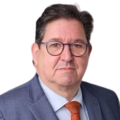
Stefaan Vyverman is in charge of the Telecom Market & Media Department and the Assignments Department. He is also responsible for the internal department Logistics & Purchases.
Stefaan Vyverman holds master degrees in Business Economics and Communication Studies (UGent).
From 1993 to 1997, he worked at the Cabinet of the Flemish Prime Minister Luc Van Den Brande, where he advised on media & telecommunications policy and general economic affairs. He then built up an extensive telecoms expertise within Proximus’s Wholesale Department. Stefaan has been working as a telecom consultant since 2015. In that capacity, he has directed a wide range of projects in the telecom sector in the areas of strategy, procurement, wholesale & B2B, and market localization for both fixed and mobile technologies. Since 2019, Stefaan was also the head of 5G launch Benelux at Capgemini Invent.


Dr.-Ing. Andreas Wilzeck is Head of Spectrum Policy and Standards at Sennheiser electronic GmbH & Co. KG, Germany.
He is Vice-Chair of the ETSI TC DECT, was Chair of the ETSI Evaluation Group for IMT-2020 and is an active participant in the standardisation work of various ETSI technical committees. He also participates in WRC, ITU-R, CEPT and other PMSE-related spectrum regulatory work globally.
He received the Dr.-Ing. degree from the Faculty of Electrical Engineering and Computer Science at Gottfried Wilhelm Leibniz Universität Hannover in August 2009.


Dr. Andreas Mueller is the Head of Communication and Network Technology in the Corporate Research Department of Robert Bosch GmbH in Stuttgart, Germany and at the same time the Bosch Chief Expert for Communication Technologies for the IoT. In addition to that, he is coordinating the Industrial 5G activities of Bosch across the different business units. He also serves as General Chair of the “5G Alliance for Connected Industries and Automation” (5G-ACIA), which is the globally leading organization for driving and shaping Industrial 5G.
Prior to joining Bosch, Andreas was a Research Staff Member at the Institute of Telecommunications of the University of Stuttgart, Germany, where he was contributing to the further development of the 3GPP Long Term Evolution towards LTE-Advanced. Besides, he was working as a Systems Engineer for Rohde & Schwarz, developing a novel software-defined radio based communication system for the German Armed Forces. Andreas holds a German Diploma degree as well as a Ph.D. degree in Electrical Engineering (with distinction) and a M.Sc. degree in Information Technology, all from the University of Stuttgart, Germany.

As Europe begins to shape its vision for 6G, it is vital to reflect on the key insights gained from the development, deployment, and adoption of 5G. From the initial research stage through to full commercial rollout of 5G networks, this session will explore the challenges and successes experienced and look at the lessons that can be taken forward to inform the development of a robust and forward-looking 6G strategy. Focusing on research, standardisation, investment, allocation and assignment, licencing and more, it will provide a comprehensive view on how Europe can lead in the global 6G landscape while avoiding the pitfalls encountered with 5G.
- How successful can it be said that 5G has been in Europe to-date, and what lessons can be taken forward as we move towards 6G?
- To what extent has the leadership at an EU level been successful in building and delivering on a 5G strategy, and is there a need to rebalance any element of how EU and national policymakers are working together?
- With 5G initially very much focused around performance and speed, did this arguably become a distraction and lead to other areas such as the need for ubiquitous coverage indoors and in rural areas to be neglected? If so, then how can this situation be avoided for 6G?
- What role did Europe play in the global standardisation efforts early in the 5G development process, and should the approach to this be changed as we move towards 6G?
- How can we foster a culture of innovation and collaboration among academia, industry, and government to drive 6G research and development? Are there lessons that can be taken from experiences with 5G in this area?
- To what extent has underinvestment been an issue within the 5G ecosystem, and how can this be addressed as we move towards 6G?
- If we had our time again, what changes could be made to the way in which the 5G pioneer bands were identified and rolled out in Europe? Was there enough coordination, and if not, how could improvements have been made in this area?
- As we move towards 6G, to what extent is fully aligned assignment of spectrum across the EU a reality? Where does the balance lie between harmonisation and the need to allow for flexibility between member states? Is there an argument to look at extending licence periods as we move towards 6G?

Richard is a journalist and analyst at PolicyTracker. He has written for local news outlets and writes on the publishing platform Medium. Richard is bilingual and fluent in English and German. He also maintains the 5G Observatory website, which is funded by the European Commission. He also covers various spectrum policy issues for Policy Tracker’s newsletter.
Richard has an undergraduate degree in Media & Communications from Goldsmiths, University of London.


After a state exam in law at the University of Osnabrück, Mr Kühn has been working since 1998 in the area of legal internship (e.g. at Regional Court) of the Federal Network Agency Germany; changing to National and International Spectrum Regulation on different levels in 2005. Nowadays, he is the Deputy Head of Section for International Affairs and Utilization Concepts. His responsibilities cover strategic frequency utilization concepts and the transposition of those to the international level of CEPT, EU and ITU. Doing this and having been active in the preparation of three WRC’s, on national and on CEPT CPG level, Mr Kühn participated in a number of international Groups, also as Head of the German Delegation. He has also chaired several groups and subgroups in the ITU and CEPT. Since 2005, he has been responsible for the German preparation of the WRC’s and served as CEPT CPG Vice Chairman from 2010 to 2013. Mr Kühn was appointed Chairman of CPG in June 2013.


The Smart Networks and Services Joint Undertaking (SNS JU) is pleased to announce the appointment of Erzsébet Fitori as its new Executive Director, effective 1 October. She will be the Chief Executive responsible for the day-to-day management of the JU and will act as its legal representative.
Her wealth of experience in the telecommunication industry positions her to work with the 6G-IA and the Commission in the Governing Board as pivotal in steering the SNS JU towards its missions of achieving industrial leadership in 5G deployment and 6G research and innovation in Europe.
Erzsébet holds an LL.M. degree in European Law from Leiden University (the Netherlands) and a Law degree from the University of Miskolc, Hungary. She has previously served as Head of EU Affairs & Relations at Vodafone Group and before that she led pan-European industry associations as the Director General of the FTTH Council Europe and Director of the European Competitive Telecommunications Association (ECTA). In her early career she was Head of Regulatory Affairs at Telenor and Assistant professor at the European and Private International Law Department of the University of Miskolc. She has a strong track record of creating and executing successful strategies, driving multistakeholder organisations, operational excellence and building highly effective teams.
Her mission will be to drive forward the SNS JU, a new entity officially established in November 2021. She will take over from Peter Stuckmann, DG CONNECT, who served as Interim Executive Director for the past two years and will complete setting up the Programme Office, currently employing 12 staff members. The SNS JU continues to grow and expects to reach its full staff capacity in early 2024.


Jonas Wessel is Director of the Spectrum Department at the Swedish Post and Telecom Agency (PTS). He is also Chair of the Radio Spectrum Policy Group (RSPG) for the 2018-2019 period. The RSPG is a high-level advisory group that assists the European Commission in the development of radio spectrum policy. Jonas holds a MSC from the Royal Institute of Technology (KTH) in Industrial Engineering and Management. Jonas started his professional career as a strategy consultant, working mainly with business development in the telecoms and IT-sector.
In 2003, he joined the PTS as advisor on radio spectrum policy issues. After several positions within the Agency, including responsibility for auctions, he was assigned Director of the Spectrum Department in 2014. Jonas has been one of the driving forces behind the transformation of spectrum management in Sweden and has also been working with these issues internationally, mainly through the RSPG where he has been a delegate since 2004. He was Vice Chairman of the RSPG for the 2016-2017 period.


Natalia Vicente is the VP of Public Affairs at GSOA where she works closely with the Secretary General and the CEOs of ESOA Member companies to drive forward high-level advocacy for the satellite communications sector. Specifically, Natalia focuses on the Development Agenda working with international organisations to ensure nation states understand the value of leveraging available satellite communications services to bridge digital, education and health divides in their countries.
Natalia is also a Board Member of the European Internet Forum where she represents ESOA in front of Members of the European Parliament. Natalia has over a decade of experience in the digital sector, focusing on public policy, government relations and building international partnerships.
Before joining ESOA, Natalia worked for the European Telecommunications Network Operator’s (ETNO) working on public and regulatory affairs. Prior to that, she worked for Telefonica, Telecom Italia and TagTagCity, where she was one of the first employees involved in establishing a start-up venture providing mobile solutions to municipalities and local businesses in Belgium.
Natalia is a qualified lawyer with an LLM from the University Autonoma of Madrid and holds a Master of Business Administration specialised in Marketing. She is a Spanish national, lives in Brussels and speaks 4 languages.


More information available shortly.


Volker is an energetic, strategic and purpose-driven leader with 25+ years of broad and international experience in the telecommunications industry. He currently serves as Senior Technology Advisor and Chief Architect in Nokia Strategy and Technology unit. Previously, Volker has exercised a leadership role with Nokia Bell Labs in 6G research and ecosystem. Prior to this, he has served as Head of 5G Leadership and Chief Architect of Nokia Mobile Networks.

WRC-23 saw the allocation of a number of new spectrum bands to be used for 5G services. With this new bandwidth, the ITU said it will now be easier to provide a ‘clear roadmap’ for the evolution of 5G and the development of its next iteration: 5G-Advanced. Now more than a year on, this session will provide the opportunity to look in detail at progress that has been made in this area, and more broadly at the work that is taking place towards the development of a spectrum roadmap for 5G-Advanced and further forward towards 6G. It will look at the key frequency bands that are already shaping the future of wireless networks and at the bands that are set to play a part in delivering the next generation of connectivity. And finally, attention will be given to how spectrum in these bands should be allocated, licenced and used to ensure that their potential is maximized, and how technology and policy advances can be built into existing roadmaps to deliver a forward-looking approach to ensure global leadership for Europe.
- What roadmaps are in place for the deployment of 5G standalone and 5G-advanced, and what progress has been made in delivering on these?
- What barriers still exist, and how can these be overcome?
- To what extent should the emergence of 5G-advanced be seen as a crucial stepping stone towards 6G? How can stakeholders across Europe balance the need to look forward towards 6G whilst also considering the growing connectivity needs of 5G Advanced in the shorter term?
- How can it be ensured that respective roadmaps and plans developed for 5G-A and 6G are complementary in terms of spectrum bands, licencing and allocation plans, regulatory frameworks, and more?
- What will be the spectrum requirements for an introduction of 6G mass market in the EU to meet both capacity and coverage needs? When will this bandwidth be required?
- Is it inevitable that the spectrum within one or more of the candidate bands that have been identified for study for IMT use ahead of WRC27 (4400 – 4800 MHz; 7125 – 8500 MHz and 14.8 – 15.35 GHz) will be used as the bedrock for initial rollout, or are there other possible options to consider?
- What role is spectrum allocated on a licenced, unlicenced, and shared basis set to play a part in meeting future connectivity needs?
- What work is being done to work towards coordinating 6G band plan at a European level, and to what extent can a fully harmonised approach be delivered?

Yasmine Frizlen is an Economist at NERA, a leading economic consultancy that has been involved in spectrum policy for over 35 years. Yasmine has supported regulators and private companies on all five continents, with projects involving the design and implementation of spectrum auctions, valuation and pricing of radio spectrum, legal disputes involving spectrum, and studies on the application of economics to spectrum management. She co-authored a chapter on spectrum pricing in NERA’s new book: Round-by-Round: Learnings form the First 35 Years of Spectrum Auctions.
Yasmine holds a MSc in Economics degree from the London School of Economics, United Kingdom.

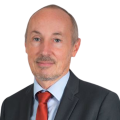
Eric Fournier is currently Director for Spectrum Planning and International Affairs in the Agence Nationale des Fréquences (ANFR), the French public agency in charge of spectrum management (www.anfr.fr).
In this capacity, he is responsible for preparing the revisions of the French national table of spectrum allocation and for coordinating French positions in international meetings and conferences on spectrum within ITU, CEPT and EU. He was deputy head of the French delegation for RRC-06, WRC-07, WRC-12, WRC-15 and WRC-19.
He is currently chairman of the RSPG, a high-level advisory group that assists the European Commission in the development of radio spectrum policy. He has been involved in all discussions on major evolutions of spectrum in Europe and was Chairman of the Electronic Communication Committee (CEPT/ECC) from 2013 to 2018 and of the European Conference Preparatory Group for the World Radiocommunications Conference 2012 (CPG-12).
Eric is a graduate telecom engineer from SUPELEC (France).

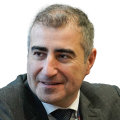
More information available shortly.

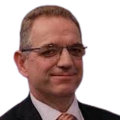
More information available shortly.


Erika Tejedor is Director of Government and Industry relations at Ericsson and focuses on ensuring harmonized future spectrum availability for 5G globally. She has been with Ericsson for over 10 years and during this time, she has focused on spectrum from different perspectives: research, product development, 3GPP RAN4 standardization, spectrum regulation. At the moment, Erika focuses on ITU-R activities and coordinates spectrum related work among the different regions.




Thomas Skordas received his Diploma in Electrical Engineering in 1984 and his PhD in Computer Science in 1988. From 1988 to 1995, he worked in France as a Research Fellow and project leader in EU-funded R&D projects in the areas of Information Technology and Robotics.
In 1995, Thomas joined the European Commission as a Research Programme Officer in the Directorate General Information Society & Media (DG INFSO). Since then, Thomas has worked in various units of DG INFSO (which became DG CONNECT in 2012) dealing with ICT research in the context of the EU Research and Innovation Framework Programmes. From 2006 to 2009, he was Deputy Head of Unit for ICT Security and Trust. In 2009, he was appointed Head of the Photonics Unit and in 2014, Head of the Flagships Unit. In March 2017, Thomas was appointed Director of the Directorate for “Digital Excellence and Science Infrastructure” in DG CONNECT and in May 2022, he was appointed Deputy Director-General of DG CONNECT.

Last year’s State of the Digital Decade report highlighted concerns about the progress towards the European Commission’s 2030 connectivity targets. It found that 5G networks currently cover only 50% of the EU’s territory, with performance levels falling short of what is needed to provide advanced 5G services. Beyond 5G, the report also pointed out slower than expected progress in the adoption of technologies like AI and cloud computing, as well as the overall pace of digital transformation. This session will examine whether these concerning findings reflect the reality, and if so, identify the contributing factors and discuss the ongoing and necessary efforts to get back on track. It will start with an exclusive presentation by Connect Europe of their annual State of Digital Communications Report, offering an update on the rollout of 5G and related digital technologies across Europe. Following this, panellists will review and discuss the actions taken at the member state level since the report’s release to adjust national roadmaps and address identified gaps; and explore how stakeholders can collaborate to regain momentum and secure a leading position in the future development of advanced 5G and other related communication technologies.
- What are the most significant gaps identified in last year’s State of the Digital Decade report concerning 5G deployment and digital transformation, including in the delivery of connectivity and digitalisation to rural areas and beyond large cities?
- To what extent are these findings echoed in the Connect Europe report released today, and what picture is being painted of the overall strength of the digital communications sector in Europe?
- Is Europe falling behind other regions in the world when it comes to 5G, and if so, what (if any) impacts are being seen?
- What adjustments to national roadmaps and plans have been seen across member state levels since the release of the report? To what extent can these have an impact on delivering the ambitions that are targeted?
- What impact can the Draghi and Letta reports have on delivering new momentum to the drive towards the 2030 targets, and how could these impact measures that are being taken at both a European and member state level?
- What measures can Governments take to boost investment and competitiveness in the digital economy, and how are these strategies being implemented at the national level?
- Based on the progress that has been made to date, is there a need to redefine Digital Decade targets and KPIs? If so, then how can the move towards 5G standalone and 5G advanced be reflected in any new targets that are being set?

Luca Bertuzzi is a tech journalist specialized in digital policy and European affairs. He is a Senior AI Correspondent at MLex. He previously worked at EURACTIV as Technology Editor, overseeing an international team of four reporters based in Brussels, Paris, and Berlin. For his reporting, Luca has been awarded the 2024 AI Policy Leader Award from the Center for AI and Digital Policy Europe. He has collaborated with la Repubblica, Tagesspiegel, and Tech.eu, among other publications. You can follow Luca’s work on X and LinkedIn.


Alessandro Gropelli is the Director General of Connect Europe, the voice of the leading providers of connectivity networks and services in Europe. Alessandro is a technology and political affairs leader, trained in Europe and overseas. At Connect Europe, he leads the Team and represents the Association. He is also a Board member of GeSI, the Global Enabling Sustainability Initiative.
Alessandro previously served at ETNO, the former association representing leading telecom operators, in different positions. In the period 2018-2024 he was Deputy Director General: in this capacity, in 2023-2024, he curated the transformation project ETNO+, which resulted in the launch of Connect Europe. In 2023 he was named in the top 10 of Politico’s Power40 list as one of the most influential operatives in European affairs. In 2016-2018 he served as Director of Communications of ETNO and, back in 2013-2016, he was Head of Communications and Media.
Before joining the Association, between 2010 and 2013, Alessandro was European affairs advisor at Vodafone Group and vice-Chairman of the m-commerce Working Group of mobile operators’ association GSMA Europe. Prior to that, in 2009, he also worked in the Public Affairs team of Telecom Italia and as a public relations officer at the European Parliament.
Alessandro holds an Executive MBA from Copenhagen Business School (2021) and finalised executive education courses at the MIT (2018) and Berkeley Haas (2016). He graduated in public management from Bocconi University in Milan (2009) and concluded an education programme at the Hitotsubashi University of Tokyo (2008). He speaks English, Italian and French.


ALEKSANDER SOŁTYSIK is an attaché for the telecommunication sector in the Permanent Representation of Poland to the European Union and represents Ministry of Digital Affairs in the Council of the European Union. The main responsibilities are matters regarding radio spectrum, gigabit infrastructure, artificial intelligence and Digital Decade. Currently he is the Chair of the Radio Spectrum Policy Group – a high-level advisory group that assists the European Commission in the development of radio spectrum policy. He is also an outgoing co-rapporteur of the RSPG Working Group on Peer Review and Member State cooperation on authorizations and awards, which is responsible for annual reports on the implementation of the art. 35 of the European Electronic Communications Code. Aleksander was the Head of International Telecommunication Unit at the Ministry of Digital Affair, engaged in the International Telecommunication Union’s and CEPT matters, mainly focusing on the preparations for the World Radiocommunication Conferences. He was a Kosciuszko Foundation scholar at the Hoover Institution, Stanford University and hold a PhD degree from the Jagiellonian University in Cracow.


More information available shortly.


Agustín Díaz-Pinés is a telecommunications expert at DG Competition, European Commission, dealing with mergers in the telecommunications, IT and media sectors.
He previously worked as an economist and policy analyst at the Organisation for Economic Co-operation and Development (OECD, Paris, 2009–2015) in the Digital Economy Division, including projects on international mobile roaming, convergence, and various country studies (Mexico, Colombia).
He started his career at the Spanish government (State Secretariat for Telecommunications and the Information Society), involved in national and European ICT policy. Mr. Díaz-Pinés holds a Masters in Telecommunications Engineering from the Madrid University of Technology and a PhD in Management/Economic Sciences from École Polytechnique/Paris-Saclay in Paris (France).


Maurice Patrick is a Managing Director within European Telecommunication Services Equity Research, coordinates Barclays’ Telecoms Equity Research globally and has 20 years experience in the Telecoms industry. Maurice joined Barclays in 2009. Prior to this, he was an Executive Director at JPMorgan and at Bear Stearns. Maurice has worked as an equity analyst since 2002. Prior to this, he worked in the Telecoms industry at BT and O2. Maurice has an MBA from the Cranfield School of Management, an MSc in Telecommunications from the University of London, and a BSc in Physics and French from the University of Bristol.


Chris leads the EU Public Policy team at Cisco, with a focus on all things cybersecurity and data protection. Chris heads the Brussels Office for Cisco’s Government Affairs team, responsible for engagements with the EU institutions.
He joined the Government Affairs team in Europe, Middle East, Africa in 2008. Chris has held multiple industry leadership roles. He is currently a Member of the Board of the European Internet Forum (EIF) and of DIGITALEUROPE.
Prior to Cisco, he was responsible for campaign strategies and digital economy policy work at DIGITALEUROPE. He has been in Brussels since 2003, initially as an Assistant to a Member of the European Parliament, working on internal market and legal affairs issues. He studied Philosophy, Politics and Economics at Oxford University.


Jakob Greiner joined Deutsche Telekom in 2015. He is leading the group’s overall engagement towards the European institutions, international organizations & trade associations. Prior to that, Jakob worked as legal counsel for Apple in Germany and as political advisor to a Member of the European Parliament. Jakob is a qualified German lawyer, he holds a law degree from Ludwig-Maximilian-University Munich and a PhD in European institutional law from the University of Bayreuth.

Last year, the European Commission published their whitepaper ‘How to master Europe’s digital infrastructure needs?’, with the aim of setting a blueprint to deliver the connectivity networks of the future and achieve a true Digital Single Market. It is now down to the new Commission to look at how to take this forward and at whether to proceed with the delivery of the ‘Digital Networks Act (DNA)’ that was proposed. Against this backdrop, this ‘speed pitch’ session will hear from different stakeholders on what they see as the key priorities for the new Commission when it comes to 5G and other key technologies, and more broadly on the path forward in order to deliver the future “Connected Collaborative Computing” (the 3Cs). It will look both at the whitepaper proposals and beyond and gauge opinion on the best way forward for Europe to seize the opportunities that exist and avoid being left on the sidelines of digital evolution.
Participants will have 5 minutes each to deliver their ‘pitch’ to the new European Commission. They will each be asked to address 2 key questions:
- What should be the key priorities for the new Commission in accelerating the deployment and adoption of 5G across Europe?
- What broader roadmap would you like to see for 5G and other related technologies, and to what extent do you feel that the development of a new “Connected Collaborative Computing” (the 3Cs) ecosystem should be a legislative priority?

Amit specialises in advising on complex wireless transactions and strategy projects, including supporting mobile operators with spectrum valuation and regulators with the development and implementation of spectrum policy.
Amit has over 25 years of experience advising fixed and mobile operators, regulators/government bodies, financial institutions and equipment manufacturers on commercial, technical and regulatory issues. He has supported several multi-billion dollar M&A and debt financing transactions and has led numerous high-profile studies in the area of radio spectrum policy. Amit brings a global perspective to his work, having undertaken projects for clients in Europe, Asia, the Middle East, Africa, and the Americas.
Amit holds an M.Sc. in Radio Frequency and Communications Engineering from the University of Bradford, UK and an M.B.A. from the University of Warwick, UK.


Miguel González-Sancho is since March 2024 Head of the Unit, Future Connectivity Systems at the European Commission, responsible for EU policy and funding for advanced digital communication networks, including telco-cloud-edge convergence, 5G/ 6G research and deployment (in close coordination with the “Smart Network Systems” Joint Undertaking), and submarine cables resilience.
He was previously during 2,5 years Executive Director of the “European Cybersecurity Competence Centre” (an EU body managing cybersecurity research and deployment projects, in coordination with the European Commission and EU Member States). He has also been working for over 20 years at the European Commission on EU digital policy, legislation and funding, notably heading units for “Cybersecurity”, “eHealth” and “Administration and Finance” at Directorate-General “CONNECT”.


Laszlo Toth is the Head of Office of GSMA Europe, which is the European arm of the GSM Association – the global body that represents the worldwide mobile communications industry. In this capacity Laszlo is responsible for the day-to-day running of the GSMA’s Brussels office. He works closely with members to facilitate coordinated advocacy efforts at the EU level in order to create a policy environment that maximizes the mobile industry’s ability to invest in infrastructure and drive economic growth.
Laszlo started his professional career working at telecoms operators. Prior to joining GSMA in 2011, he spent nine years at the Hungarian public administration, including spells at the Ministry responsible for ICT and at the national telecoms regulator. Laszlo has an MSc. in economics and holds a degree in computer sciences.


Maarit Palovirta is the Deputy Director General of Connect Europe, the voice of the leading providers of connectivity networks and services in Europe. She leads the association’s policy and organisational strategy, overseeing its work on a variety of policy and regulatory topics as well as its international outreach. She is also a Board member of CTAM Europe.
Before joining the Association as a Director of Regulatory Affairs in 2019, Maarit was a Senior Manager of European Affairs at the Internet Society where she acquired strong experience in internet development as well as extensive links with global internet and tech stakeholders. Prior to that, she engaged with governments across EMEA as a public sector business development manager at Cisco Systems for six years. Maarit has also developed a strong service-oriented, hands-on profile acquired in leading public affairs consultancies in Brussels.
Maarit has an academic background from the College of Europe, London School of Economics, King’s College London and SciencesPo Paris and has completed executive education courses at IESE. She speaks Finnish, English and French.


Isabelle Mauro is Director General of the Global Satellite Operators Association (GSOA) that represents the interests of 70 members in the satellite ecosystem. She reports directly to their Chief Executives.
Under Isabelle’s leadership, GSOA and its member CEOs lead the effort to showcase the benefits of satellite communications for a more inclusive and secure society – vital to bridging the world’s digital divide, achieving the UN’s Sustainable Development Goals and realizing the 5G ecosystem.
Isabelle has 25 years experience in the Telecoms and Technology sector, starting at the GSMA, where she was responsible for government and international Affairs. In 2015 she moved to New York to join the World Economic Forum as Head of Information, Communications and Technology Industries, managing the portfolio for 60+ Tech companies globally and leading initiatives on inclusive and sustainable digital transformation.
Isabelle is passionate about inclusion and sustainability. She is Chair of the High-Level Advisory Board of the DigitalGoesGreen Foundation. She also sits on the Advisory Board of Women in Tech and is a member of the UNESCO Advisory Group for the Declaration on Connectivity for Education.
Isabelle holds an MSc in European Politics and Policy from the London School of Economics. She is fluent in French, English, Italian and Spanish.


Kevin Robinson is a 15-year veteran of Wi-Fi Alliance and became CEO of the organization in October 2022. Kevin is focused on securing sufficient, harmonized global Wi-Fi spectrum, deepening engagement and cohesion across the Wi-Fi ecosystem, and evolving the organization to ensure it remains as nimble as the industry it serves.
Serving as Wi-Fi Alliance’s Vice President of Marketing for the last seven years, Robinson has led many of the organization’s most transformative initiatives and has been a leading ambassador for promoting WiFi and WiFi Alliance as a collaboration forum worldwide. Kevin oversaw branding, communications, market development, product management, program marketing, and public relations for the organization. He was also responsible for driving the development of Wi-Fi Alliance corporate strategy.
Before joining Wi-Fi Alliance in 2008, Kevin enjoyed working with early-stage technology startups on business strategy consulting and technology market research. Kevin is a veteran of the United States Army, where he served as a Captain in the Infantry. Kevin holds a BS in Computer Science from the United States Military Academy at West Point and an MBA with a specialization in Entrepreneurship from The University of Texas at Austin. He lives with his family in Austin, Texas.


Luigi Ardito is currently working as Director of government affairs for Europe, Middle East and North Africa at Qualcomm and drive Qualcomm spectrum and regulatory policy agenda in Europe and MENA dealing with various government entities and industry organizations. Luigi is also part of the Global Spectrum Team at the GSA (the Global mobile Suppliers Association).
Prior to joining Qualcomm, Luigi worked for over a decade at Sony Corporation both in Japan and in the UK. Luigi gained also professional experience at France Telecom and at the Italian Public Broadcaster RAI.
Luigi has extensive experience in the Media and Telecom industry as well as the Semiconductor Industry gained through his assignments at Qualcomm, Sony, France Telecom and RAI. He holds an Electronic Engineering Degree gained at the Politecnico di Torino in Italy and a Master of Business Administration gained at the Henley Management College in the UK.

Panel will consist of stakeholders listed above

Robert Mourik is a BEREC Vice-Chair in 2024 and will assume the role of BEREC Chair for 2025 on 1 January. He joined the Commission for Communications Regulation (ComReg) as Commissioner in 2019 and has almost thirty years’ experience in the telecoms sector, as an industry executive and as a Government official. Prior to joining ComReg, he worked for Cubic Telecom, a new entrant in the automotive IoT space, where he was responsible for all wholesale activities. Robert spent almost 10 years in Telefonica as the European Regulatory Strategy Director at their corporate HQ in Madrid and as Strategy Director in Ireland. He also worked for Vodafone Group, as its head of their Brussels Office and in the regulatory department in Newbury, UK. In 1991, Robert began his career in the Dutch Department for Transport and Telecommunication, and from 1994 until 1999, he served as Telecom Attache at the Netherlands’ Permanent Representation in Brussels. He was a Member and Chair of the Council Telecoms Working Group in 1998, when the first telecom regulatory package was adopted. Robert was born in the Netherlands and studied Economics and Public Policy at the Erasmus University in Rotterdam and the University of Hull (UK).

One of the biggest challenges faced when it comes to rolling out 5G networks in Europe has been securing access to the necessary funding and investment. In the face of falling revenues and profits, Europe’s largest telecom groups have been calling for support in order to help them invest the billions that are required to hit key 5G rollout targets. This session will look at the investment environment that is currently seen in Europe and whether changes are indeed needed in order to keep 5G on track. With the recent Letta and Draghi reports both highlighting sector consolidation as a way of boosting investment, it will discuss arguments around this and how it could impact the ability of operators to reach the scale needed to invest in the networks of the future. It will also discuss whether changes need to be made in order to create a regulatory level playing field for MNOs, big tech, and other stakeholders. Finally, it will look at some of the different public funding instruments that are available and at how the impact of these can be maximised and focused in the right areas to make maximum impact.
- Where does Europe sit compared to other regions around the world when it comes to the levels of private and public funding that is being allocated towards 5G deployment?
- Is fragmentation of the mobile sector impacting the ability of operators to reach the scale to invest in network rollout? To what extent could increased in-market consolidation address the investment shortfall and improve European competitiveness?
- What were the conclusions of the recent Letta and Draghi reports in this area, and how can consolidation be balanced with the need to ensure a competitive telecoms market?
- Where do the discussions currently lie around the delivery of a regulatory level playing field between mobile operators and big tech, and what are likely to be the next steps in this area?
- What impact has been seen from public funding mechanisms such as Horizon, CEF, and others; and how are these being linked with policy goals and objectives (for example, sustainability, security) to ensure that the required funding is directed in the right places?
- What ultimately is the best and fairest way forward to find the required funding to continue to rollout and upgrade networks and secure Europe’s digital future?

An engineer with broad experience in the telecoms and technology sectors, Andy has a particular interest in spectrum (auctions and valuation) and the impact of new technology (5G, AI, IoT and Big Data). He brings a deep understanding of both the industry and regulatory perspectives around the world through his role as Head of Policy for the GSMA and as Director of Spectrum Policy at Ofcom.
Andy spent 12 years at Vodafone, where he held various senior product development and corporate strategy roles. As Head of Spectrum, he was responsible for managing spectrum policy and auctions across the Vodafone Group. He led over twenty spectrum auctions around the world (including Turkey, Italy, Germany, India, Spain, Italy, Greece, Australia, Romania, NL and UK) from strategy/business case development to Plc. Board level sign-off and in-country implementation.
He was formerly a management consultant, has launched an internet payments and encryption company and worked as a research scientist at Sharp Laboratories of Europe and Sony Corporation, based in Japan. He has a doctorate in Engineering Science from Oxford University and an MBA. He is a frequent invited speaker at international conferences.


Professor Konstantinos Masselos has been appointed as the President of the Hellenic Telecommunications & Post Commission (EETT) in February 2018.
He has been elected as President of the Body of European Regulators for Electronic Communications (BEREC) for 2023 and also, Vice-President for 2022 and 2024. Moreover, he served as Vice-President of BEREC in 2019.
He is Professor in the Department of Informatics and Telecommunications of the University of Peloponnese and he served as Rector of the above University during the period 2012-2017. From 2005 to 2008, he was Lecturer in the Department of Electrical and Electronic Engineering at the Imperial College London. Also, during the period 2010-2016 he was an Honorary Lecturer in the same Department.
During the period 2001-2004, he worked in the electronic communications industry. Since 2005 he has been collaborating as an expert with various units of the European Commission. Also, he was a member of the Scientific Committee of the European Cooperation in Science and Technology (COST) from 2015 to 2017.


Professor Konstantinos Masselos has been appointed as the President of the Hellenic Telecommunications & Post Commission (EETT) in February 2018.
He has been elected as President of the Body of European Regulators for Electronic Communications (BEREC) for 2023 and also, Vice-President for 2022 and 2024. Moreover, he served as Vice-President of BEREC in 2019.
He is Professor in the Department of Informatics and Telecommunications of the University of Peloponnese and he served as Rector of the above University during the period 2012-2017. From 2005 to 2008, he was Lecturer in the Department of Electrical and Electronic Engineering at the Imperial College London. Also, during the period 2010-2016 he was an Honorary Lecturer in the same Department.
During the period 2001-2004, he worked in the electronic communications industry. Since 2005 he has been collaborating as an expert with various units of the European Commission. Also, he was a member of the Scientific Committee of the European Cooperation in Science and Technology (COST) from 2015 to 2017.


Franco Accordino is the Head of the “Investment in High-Capacity Networks” unit within the European Commission’s Directorate-General for Communications Networks, Content and Technology (DG CONNECT). The unit is responsible for the deployment and take-up of very high-capacity broadband networks underpinning the Digital Single Market and promoting the European Commission’s vision and policy actions to turn Europe into a Gigabit Society by 2025.
Prior to this role, Franco was the Head of “Knowledge Management and Innovative Systems” unit providing support to DG CONNECT policies and operations and delivering advanced solutions for the European Commission’s internal take up in such fields as data analytics, web platforms (futurium) and artificial intelligence.
Before becoming Head of Unit, Franco led the Task Force “Digital Futures”, a participatory foresight project aiming to devise 2050’s visions and policy ideas underpinned by the digital transformation.
During his experience at the European Commission, Franco worked as a scientific and policy officer and Director’s Assistant in such fields as Future and Emerging Technologies, Future Internet, High-Performance Computing, Grid and Cloud technologies, Trust and Security.
Before joining the European Commission, he worked at the ETHZ/CSCS National Supercomputing Centre of Switzerland and at the National Research Council of Italy where he conducted research on formal methods, languages and tools for complex systems specification.
He has a long-standing experience in several information technology fields, including formal methods and software engineering, cloud and distributed systems, network centric operating systems, web platforms, AI, machine learning and data analytics.


Veronica is responsible for Cullen International’s regulatory training portfolio, developing and executing training and capacity building programmes for industry stakeholders, policymakers and regulators across the globe.
With over 20 years of professional experience, she has extensive knowledge of the implementation of the EU regulatory framework across Europe.
Before joining Cullen International, Veronica worked for Ericsson consulting practice in Stockholm.


Dragan Jovanovic is the Director Public Affairs & Communications for ATC Europe. He is responsible for ATC Europe’s regulatory strategy, governmental relations practice and communications practice.
Before joining ATC Europe, Dragan was Chief Economist for Vantage Towers AG, leading the company’s economics practice and policy and regulatory analysis. Prior to that, Dragan worked at Deutsche Telekom AG as Senior Manager Public & Regulatory Affairs and at the European Commission (DG COMP, Chief Economist Team) as an economist dealing with EU merger and antitrust cases.
Dragan holds a PhD from Heinrich-Heine University Düsseldorf in Economics.


Luigi Ardito is currently working as Director of government affairs for Europe, Middle East and North Africa at Qualcomm and drive Qualcomm spectrum and regulatory policy agenda in Europe and MENA dealing with various government entities and industry organizations. Luigi is also part of the Global Spectrum Team at the GSA (the Global mobile Suppliers Association).
Prior to joining Qualcomm, Luigi worked for over a decade at Sony Corporation both in Japan and in the UK. Luigi gained also professional experience at France Telecom and at the Italian Public Broadcaster RAI.
Luigi has extensive experience in the Media and Telecom industry as well as the Semiconductor Industry gained through his assignments at Qualcomm, Sony, France Telecom and RAI. He holds an Electronic Engineering Degree gained at the Politecnico di Torino in Italy and a Master of Business Administration gained at the Henley Management College in the UK.

As the deployment of 5G networks continues to accelerate and connected devices becomes more embedded in our everyday lives, so do the associated security risks. This discussion will explore the measures that have already been taken by both connectivity providers and regulators to mitigate risks, and looking forward, it will discuss how cyber security challenges are evolving and what needs to be done to secure the next-generation networks.
- What specific security concerns are raised by 5G, and how are regulators and connectivity providers working together to develop sophisticated solutions in order to tackle these?
- What emerging threats, attack vectors, and trends are being seen as we move towards the next generation of connectivity – 5G Advanced and beyond?
- What updates may need to be made to existing regulations and cyber frameworks to cope with these?
- How is the emergence of new technologies such as quantum communications and AI affecting both sides of the cyber security battleground (both in terms of enabling smarter, more complex, and sophisticated threats from cyber criminals) and also aiding in the development of more proactive and adaptive security measures?
- How important is sharing of information, threat intelligence, and best practice in order to address the evolving threat landscape? To what extent is this being seen both at a European and global level, and can more be done?

Iva Tasheva is the co-founder and cybersecurity lead at CYEN, an award-winning consultancy established in Brussels in 2018. Cyen is recognised for providing pragmatic, business success-oriented cybersecurity risk and compliance solutions that are strongly tailored to its client’s needs. Cyen specialises in the financial, manufacturing, public and digital sectors.
In addition to her work for CYEN, Iva is an appointed Member of the EU Cybersecurity Agency (ENISA) Ad-Hoc Working Groups on Enterprise Security and on Cloud Security (Certification) and a Board Member of Women4Cyber Belgium.
Her expertise is recognised, being winner of the BeNeLux Outstanding Female Security Professional Award (OSPA) 2024, Belgium Cybersecurity Personality of the Year 2022, and listed ‘35 under 35’ by Santander/CODIB. She is a published author, including authoring the Bulgarian Guide for SME Cybersecurity, and a regular speaker. Iva holds an MBA from KULeuven and a Master in Cybersecurity degree from the New Bulgarian University. She is a certified ISO 27001 Lead Implementer, ISO 27799 Lead Manager, and DORA Senior Lead Manager.
Follow Iva Tasheva (or CYEN) on LinkedIn for updates on cybersecurity policy and implementation. Follow ‘CYEN – Cybersecurity’ on YouTube for monthly cybersecurity top experts’ interviews.


Mrs Svetlana Schuster is Acting Head of Unit Cybersecurity technology and capacity building at DG CONNECT, European Commission. She joined the European Commission in October 2011 and worked in the area of implementation of the EU regulatory framework on electronic communications and later on developing EU cybersecurity policy and its implementation. Mrs Schuster is a fully qualified German lawyer, graduated from Europa-Universität Viadrina Frankfurt/O., Germany and Vrije Universiteit Brussels (LL.M in International and European law).


Ms Katja Kmet Vrčko is a lawyer with more than 20 years of experience in electronic communications. Prior to her current role as Advisor to the Director for International Affairs, she was heading the Inspection and Security Department for 9 years. She is an active member of different European expert working groups in the cybersecurity field. Since 2019 she is a Co-Chair of the BEREC’s Cybersecurity and Resilience Working Group, which cooperates with the Commission, NIS 5G Cooperation Group, ENISA and ECASEC. For the second mandate, she was appointed as a BEREC representative to the ENISA’s Advisory Group.

Similarly to all other industries and sectors around Europe, the telecommunications sector is being challenged to reduce the carbon footprint of their operations. Against this backdrop, sustainability as well as performance is becoming a big part of decisions that are being taken by connectivity providers and policymakers when it comes to 5G, and pressure is increasing from all sides to both ensure that systems are in place to monitor the environmental impact of 5G networks and that efforts are then made to ensure this impact is minimised throughout the 5G value chain. This session will examine the strategies that are currently being seen around Europe and the way in which emerging new technologies and thinking can play a part moving forward to increase the energy-efficiency of 5G rollout and operation. It will cover efforts at both European and member-state levels to track emissions in the connectivity ecosystem and develop indicators to measure 5G networks’ environmental footprint, examining progress on a European ‘Code of Conduct’ for sustainable electronic communications, which is due to be published by the end of 2025.
- How are technology advancements, energy-saving solutions, and intelligent management being applied to increase sustainability across the 5G value chain?
- What work is being done at a European and member state level to map emissions across the connectivity ecosystem and to develop indicators to measure the environmental footprint of 5G networks? Is a clearer picture starting to emerge on which areas are having the biggest impact when it comes to greenhouse gases and on where specific policy actions may need to?
- What is the current state of play with regards to the development of a European ‘Code of Conduct’ for the sustainability of electronic communications networks? How could this fit in the context of existing Codes of Conduct focusing on Data Centres and Broadband Equipment, and also broader legislative programmes, such as the EU Green Deal?
- How can it be ensured that there is not a disconnect between sustainability targets and licencing conditions, particularly when it comes to obligations to rollout networks in rural, sometimes off-grid, regions?
- As we move towards 6G, how can we ensure that we build on the progress that is already being seen in this area and that sustainability is at the heart of the rollout of new networks?

Having graduated from her PhD in Theoretical Physics, Sapphire joined Aetha Consulting as a Business Analyst.
Their work has allowed her to continue practicing problem-solving and analytical thinking on a day-to-day basis, and she loves working with her intelligent and engaged client teams. Tackling challenging technical ideas with internal project teams across Aetha’s flat hierarchy, combined with being given responsibility for delivering results from a very early point in my career, means that her role at Aetha is a fulfilling way to deliver meaningful impacts for leading TMT players.


Johannes Theiss heads policy coordination within the Future Connectivity Systems Unit in the European Commission’s Directorate‑General for Communications Networks, Content and Technology (DG CNECT). This involves coordinating the work on sustainable telecommunications networks. Johannes joined CNECT from the Directorate-General for Competition (DG COMP), where he had worked on Commission priorities and strategic coordination, notably in the digital area. Before joining the Commission, Johannes held various positions in the private sector, notably at Vodafone, the German Broadband Association, consulting, and academia. He holds two master degrees in European studies (College of Europe, Bruges) and political science (University of Bamberg, Germany).


Yvonne Finger is an economist with extensive experience in the field of energy regulation and digitalization issues. Currently, as a head of unit in the digitalization department at the Bundesnetzagentur (German Federal Network Regulatory Authority), she leads initiatives aimed at advancing digitalization within small and medium-sized enterprises (SMEs) and explores sustainability aspects of telecommunications networks and digitalization.
Before assuming her current role in 2020, she worked for nearly 16 years in the energy regulation department of the Bundesnetzagentur, where she specialized in regulatory issues, including the design and implementation of tendering procedures for renewable energy projects. She further developed expertise in the field of energy efficiency during her time as a seconded national expert at the European Commission, Directorate-General for Energy from 2008 to 2012. In her earlier career, she worked in the research department of an international management consultancy.


Azeddine Gati received the Ph.D. degree from the University of Pierre and Marie Curie (Paris VI), Paris, France, in 2000. Since 2001, he has been with Orange Gardens, France, where he has been involved in research in the fields of applied electromagnetic for telecommunications systems. He is also an Engineer in telecommunication and signal processing. From 1997 to 2001, he was engaged in studying circuit optimization and electromagnetic (EM) computational methods. In 2001, he has been involved in research on radio planning. In 2007, he leads research projects on sustainable development, including EMF, body area networks, wireless network planning tools, and energy in information, communication technology, and service solutions (ICT). Since 2011, he has been leading a research program dedicated to energy efficiency of wireless and fixed telecom systems and is currently responsible of a department dedicated to wireless networks in Orange Labs. He is currently involved in celtic plus SooGreen Project and the French research project AN spatial modulation. He has coauthored more than 30 papers and 100 international conferences. Dr. Gati is a member of the Union Radio Scientifique International, France. He is a Senior Member of SEE. He has been involved in European Celtic plus OPERA-Net 1 & 2 projects and the Vice-Chair of the wireless group in GreenTouch (ww.greentouch.org). He is currently involved in Celtic OPERA-Net 1 & 2 and SooGreen projects and was elected as Vice-Chair of the technical committee leading the GreenTouch project.


Simon Hinterholzer is a renewable energy engineer and has been working as a researcher at Borderstep Institute since May 2017. He investigates both the positive and negative sustainability impacts of digitalization as part of research projects and commissioned studies.
One focus of his work is on the sustainability assessment of digital infrastructures, especially data centres. In this area, he has conducted various research projects at Borderstep for federal ministries and the federal state of Hessen and has also prepared various studies for digital associations and institutions like Bitkom or the German Energy Agency and the European Commission. Besides those, he as a long research/publication track in the field of data centers and sustainability. The figures on the energy use of data centers in Europe and Germany from these references are used by governments in Europe and Germany as a basis for their political measures, for example currently in the Energy Efficiency Directive and in the European Commission’s data center targets.


Janette is one of Analysys Mason’s senior spectrum experts, with 25 years’ experience in radio engineering, wireless technologies, spectrum policy and spectrum management. Janette joined Analysys Mason in 2001, having previously worked for the UK Radiocommunications Agency (now Ofcom).
Janette’s expertise lies in mobile, wireless and broadband technologies and markets and her consulting experience includes advising on market developments in the wireless sector, wireless technology evolution, wireless business modelling, spectrum valuation, spectrum strategy, competition and regulation issues in the wireless market. She has worked with a wide range of public- and private-sector clients including national regulators, government departments, network operators, wireless industry trade associations, equipment vendors and telecoms users.
Her recent focus has been on 5G mobile and she has authored several published reports, including a study for Qualcomm and Ericsson on costs and benefits of 5G deployment in Europe, a study on 5G millimetre-wave deployment in Europe, reports for US industry body CTIA comparing 5G readiness in several world markets and a study on the benefits of cellular V2X technology for the 5GAA. Janette holds a BEng in Electronic Engineering from the University of Edinburgh, and an MSc in Radio Communications from the University of Bradford.


ALEKSANDER SOŁTYSIK is an attaché for the telecommunication sector in the Permanent Representation of Poland to the European Union and represents Ministry of Digital Affairs in the Council of the European Union. The main responsibilities are matters regarding radio spectrum, gigabit infrastructure, artificial intelligence and Digital Decade. Currently he is the Chair of the Radio Spectrum Policy Group – a high-level advisory group that assists the European Commission in the development of radio spectrum policy. He is also an outgoing co-rapporteur of the RSPG Working Group on Peer Review and Member State cooperation on authorizations and awards, which is responsible for annual reports on the implementation of the art. 35 of the European Electronic Communications Code. Aleksander was the Head of International Telecommunication Unit at the Ministry of Digital Affair, engaged in the International Telecommunication Union’s and CEPT matters, mainly focusing on the preparations for the World Radiocommunication Conferences. He was a Kosciuszko Foundation scholar at the Hoover Institution, Stanford University and hold a PhD degree from the Jagiellonian University in Cracow.



In his recent book ‘The End of Telecoms History’, William Webb argued that “those who are well connected, with good home broadband and good mobile coverage – even if it is only 4G – have all the connectivity that they need.” He predicts that that mobile data usage will “plateau at around 15-20 Gbytes/user/month” and that data volume growth will cease in 2027. These findings were disputed in a follow-up paper from Stefan Zehle, who highlighted a large variation in data usage across different countries and markets and noted that “in many markets mobile data usage already exceeds 20 Gbytes/user/month with significant growth rates”, arguing that this discrepancy is often linked to price and quality of service. This fireside chat will hear from both parties on their relevant perspectives, and explore whether this is indeed the end of telecoms as we know it, or whether as we move towards 5G advanced and 6G, the demand for faster networks, more fibre and the next generation of mobile technology is here to stay.

Yasmine Frizlen is an Economist at NERA, a leading economic consultancy that has been involved in spectrum policy for over 35 years. Yasmine has supported regulators and private companies on all five continents, with projects involving the design and implementation of spectrum auctions, valuation and pricing of radio spectrum, legal disputes involving spectrum, and studies on the application of economics to spectrum management. She co-authored a chapter on spectrum pricing in NERA’s new book: Round-by-Round: Learnings form the First 35 Years of Spectrum Auctions.
Yasmine holds a MSc in Economics degree from the London School of Economics, United Kingdom.


William is an independent consultant providing advice across all telecommunications matters. He was one of the founding directors of Neul, a company developing machine-to-machine technologies and networks, which was formed at the start of 2011 and became CEO of the Weightless SIG, a body standardizing IoT technology. Prior to this William was a Director at Ofcom where he managed a team providing technical advice and performing research. He has worked for a range of communications consultancies and spent three years providing strategic management across Motorola’s entire communications portfolio, based in Chicago. He was IET President 2014-2015.
William has published 19 books, 100 papers, and 18 patents. He is a Fellow of the Royal Academy of Engineering, the IEEE and the IET, a Visiting Professor at Southampton University and a Board Member of the Marconi Society. He has been awarded multiple honorary doctorates by the UK’s leading universities and in 2018 was awarded the IET’s prestigious Mountbatten Medal for technology entrepreneurship.


Stefan Zehle is the MBA, Chairman, and CEO of Coleago Consulting. He has 28 years of experience in telecoms gained as a Director of a Mobile Operating company and as a specialist telecoms management consultant. He has worked in developed markets in Europe, Canada, the US, and also in emerging markets in the Middle East, Africa, and the Far East. As the 2nd person on the ground, he played a pivotal role in launching Nedjma, the 3rd Algerian mobile operator. Stefan has worked on over 70 mobile licence bids and spectrum valuation projects. Co-author of the Economist’s Guide to Business Planning.

Key connectivity goals were set as part of the EU’s Digital Decade strategy, targeting 5G coverage for all urban areas and transport paths by 2025; and in all populated areas by 2030. What isn’t completely clear, however, is what the definition of 5G relating to this is, and this was picked up in a recent European Commission report, which recommended a need to ‘clarify the definition of “5G coverage” and its relationship to Quality of Service, to provide clearer policy goals which ensure that 5G economic and societal benefits are delivered.’ Against this backdrop, this session will explore this exact point and look at how 5G should be defined and the level of coverage, speed, and service that we should be looking to achieve. It will discuss the different strategies and technologies that provide options to deliver 5G connectivity in different scenarios and regions and where the balance lies to ensure both societal and economic benefits of 5G are met.
- What are we actually trying to achieve with the 5G coverage targets that have been set as part of the Digital Decade strategy, and what definition of 5G should be used in order to deliver on this?
- What priorities should be set in order to meet specific connectivity requirements in different scenarios, such as transport corridors, industry/business parks, and rural settings?
- Should we only be looking to deploy high-speed ‘optimal’ 5G using mid-band spectrum (eg 3.6 GHz); or should the definition of ‘coverage’ should include connectivity using the sub-1 GHz bands where the 5G experience arguably closely resembles 4G?
- What role can NTNs and other emerging technologies be part of this ‘mix’ to deliver on the 5G targets beyond the main urban and populated areas?
- Is it realistic to achieve ubiquity and hit the targets using high-speed 5G, or is there a middle ground that maximises the societal and economic benefits of 5G across all regions and delivers this at an affordable price?
- Taking things one step further, is there actually a need for 5G to be rolled out across the entire region, or is there an argument that initially it is more important to focus more on coverage rather than speed and ensuring ubiquity across Europe, whether it be through 4G, 5G, or even, in some cases, previous generations?

Matthew Newman is the global chief correspondent for MLex and writes about data protection, privacy, telecoms, cyber security, and artificial intelligence. Matthew began his journalism career in 1991 in community newspapers. He worked as a reporter in Riga, Latvia, in 1993 and then moved to Chicago, where he covered local news. In 1995, he became a personal finance reporter for Dow Jones Newswires, and was then transferred to Brussels in 1999. He specialized in EU regulatory affairs, including trade and telecom issues. He began covering competition for Bloomberg News as an EU court reporter in 2004. In 2010, he was named spokesman for Viviane Reding, the EU’s justice commissioner. In January 2012, he helped launch the commission’s proposal for overall data protection rules. He began working at MLex in April 2012 and has covered mergers, antitrust, and state-aid cases. He spent a year studying French, history, and communications in Grenoble, France, in 1988 and 1989 and is a graduate of Boston University with degrees in history and journalism. He earned a diploma in competition law from King’s College in 2016.


More information available shortly.


Dr. Tassos Lyratzis is an Electrical & Computer Engineer and holds a PhD in the field of Telecommunications & Computer Networks (1994). During his PhD studies, he worked as a specialist in Telecommunications in various European research projects.
He is currently working in the Hellenic Telecommunications and Post Commission (EETT) since 2001, in the Spectrum Directorate. He has been the Head of the Spectrum Management Department (2003-2006) when EETT was involved in the Spectrum Management of the Olympic Games of Athens in 2004. Since 2011 he is Head (Director) of Spectrum Directorate of EETT.
He participates in international activities in CEPT (ECC, WGFM) as well as in European Union groups like the Radio Spectrum Committee (2003 – 2006), and the Radio Spectrum Policy Group (2011 – today). Since 2016 he has been co-chair of the RSPG sub-Groups working on 5G and 6G topics.




Rafael Gonzalez is a Telecommunications expert with over 20 years of international experience, having worked in more than 25 countries worldwide on behalf of American, European and Middle East Governments, Regulatory Agencies, Investors and Telecom Operators.
In 2019 he joined MedUX, the leading Internet Quality of Experience (QoE) Testing and Monitoring Company, where he currently manages the EMEA Region after leading Marketing, Product and Strategy initiatives.
Previously, Rafael was Partner at Axon Partners Group, a specialist management & strategy consulting company for the Information and Communications Technology (ICT) sector. He managed the Consulting division in the Americas and the Caribbean where he helped industry stakeholders define sound policy frameworks and provide intellectual leadership on pressing issues.
Furthermore, he has been frequently participating in events and conferences on a wide range of ICT strategy, connectivity, regulatory and public policy topics.
Rafael graduated as an MBE from the Steinbeis University (Germany) and obtained a M.Sc. degree in Telecommunications Engineering from the University of Saragossa (Spain). He also holds a Postgraduate Degree in Telecommunication Economics.



The initial promise of 5G was transformative, with expectations of revolutionizing industries, communities, and creating new business models across multiple sectors. However, the reality of 5G today is more complex and nuanced. While 5G has delivered on some of its promises, such as enhanced speeds and low-latency connections in specific scenarios, the rollout and growth of anticipated use cases has been slower than expected. As 5G matures and 5G-Advanced slowly becomes a reality, this session will discuss the extent to which we are entering a ‘transformational’ phase, which could finally see the evolution of 5G into a tool that, through partnerships, convergence, and targeted business models, is enabling specific, high-impact applications in industries where advanced connectivity truly adds value. It will discuss the extent to which telcos are starting to think beyond their traditional services to integrate technologies such as cloud and edge computing alongside 5G to provide more end-to-end solutions, and separately, will explore the way in which low and medium power localized networks are emerging as a powerful means for enterprises to leverage tailored connectivity solutions.
- How have 5G business models evolved and developed since its initial launch and commercialisation back in 2019?
- What has been learnt in this time, and what are the problems that have been holding back the emergence in which areas is most growth being seen (consumer markets / gaming / business ecosystem / development of private 5G networks etc.)?
- What are the best examples of 5G business model successes, and how could these successes be replicated elsewhere?
- How are network operators and other players thinking beyond their traditional business models in order to deliver innovative new services and drive 5G revenue streams? Could convergence of services with other technologies, such as edge or cloud computing, be the key that finally monetises 5G?
- How is 5G enabling private and localized networks and how can the emergence of 5G advanced help to further enhance this? What were the findings of the recent CEPT report into the use of the 3.8 – 4.2GHz for this local area connectivity, and what work is being done more broadly to overcome technical, financial, and regulatory challenges related to low and medium power networks of this kind?
- To what extent could the speed and performance boost that is promised by 5G-Advanced help the development of new business models and use cases across vertical industries, and help to enable 5G to finally live up to the hype?

Mark (Principal) is part of Analysys Mason’s Regulation practice. He joined Analysys Mason in 2003 and has advised a variety of clients, including national regulators, fixed and mobile operators, media players, equipment vendors and investors on a wide range of projects around the world.
Mark’s work focuses mainly on radio spectrum and wider regulatory issues across the telecoms and media sectors. Among other topics, he has particular expertise in spectrum valuation and auction support, spectrum policy, and forecasting the future demand for spectrum.
His other areas of expertise include media regulation, with a focus on competition issues in pay-TV markets, content rights issues and TV advertising. Mark’s wider regulatory experience includes work on a range of competition issues, such as wholesale pricing, predatory pricing and margin-squeeze analysis, and core and access network cost modelling. Mark has also advised on the pricing of fixed and mobile telephony services and has managed several projects to support operators in the introduction of new tariff plans.
Mark trained as a mathematician and has an MA from the University of Cambridge, as well as a Diploma in Computer Science, also from Cambridge.


Jack is a Policy Principal with more than 15 years’ experience in public policy and regulation. Over the last 18 months Jack has led Ofcom’s review of the UK’s Shared Access framework to support local spectrum access opportunities. Other interests include adaptive spectrum access mechanisms and mobile coverage reporting.


Stefaan Vyverman is in charge of the Telecom Market & Media Department and the Assignments Department. He is also responsible for the internal department Logistics & Purchases.
Stefaan Vyverman holds master degrees in Business Economics and Communication Studies (UGent).
From 1993 to 1997, he worked at the Cabinet of the Flemish Prime Minister Luc Van Den Brande, where he advised on media & telecommunications policy and general economic affairs. He then built up an extensive telecoms expertise within Proximus’s Wholesale Department. Stefaan has been working as a telecom consultant since 2015. In that capacity, he has directed a wide range of projects in the telecom sector in the areas of strategy, procurement, wholesale & B2B, and market localization for both fixed and mobile technologies. Since 2019, Stefaan was also the head of 5G launch Benelux at Capgemini Invent.


Dr.-Ing. Andreas Wilzeck is Head of Spectrum Policy and Standards at Sennheiser electronic GmbH & Co. KG, Germany.
He is Vice-Chair of the ETSI TC DECT, was Chair of the ETSI Evaluation Group for IMT-2020 and is an active participant in the standardisation work of various ETSI technical committees. He also participates in WRC, ITU-R, CEPT and other PMSE-related spectrum regulatory work globally.
He received the Dr.-Ing. degree from the Faculty of Electrical Engineering and Computer Science at Gottfried Wilhelm Leibniz Universität Hannover in August 2009.


Dr. Andreas Mueller is the Head of Communication and Network Technology in the Corporate Research Department of Robert Bosch GmbH in Stuttgart, Germany and at the same time the Bosch Chief Expert for Communication Technologies for the IoT. In addition to that, he is coordinating the Industrial 5G activities of Bosch across the different business units. He also serves as General Chair of the “5G Alliance for Connected Industries and Automation” (5G-ACIA), which is the globally leading organization for driving and shaping Industrial 5G.
Prior to joining Bosch, Andreas was a Research Staff Member at the Institute of Telecommunications of the University of Stuttgart, Germany, where he was contributing to the further development of the 3GPP Long Term Evolution towards LTE-Advanced. Besides, he was working as a Systems Engineer for Rohde & Schwarz, developing a novel software-defined radio based communication system for the German Armed Forces. Andreas holds a German Diploma degree as well as a Ph.D. degree in Electrical Engineering (with distinction) and a M.Sc. degree in Information Technology, all from the University of Stuttgart, Germany.

As Europe begins to shape its vision for 6G, it is vital to reflect on the key insights gained from the development, deployment, and adoption of 5G. From the initial research stage through to full commercial rollout of 5G networks, this session will explore the challenges and successes experienced and look at the lessons that can be taken forward to inform the development of a robust and forward-looking 6G strategy. Focusing on research, standardisation, investment, allocation and assignment, licencing and more, it will provide a comprehensive view on how Europe can lead in the global 6G landscape while avoiding the pitfalls encountered with 5G.
- How successful can it be said that 5G has been in Europe to-date, and what lessons can be taken forward as we move towards 6G?
- To what extent has the leadership at an EU level been successful in building and delivering on a 5G strategy, and is there a need to rebalance any element of how EU and national policymakers are working together?
- With 5G initially very much focused around performance and speed, did this arguably become a distraction and lead to other areas such as the need for ubiquitous coverage indoors and in rural areas to be neglected? If so, then how can this situation be avoided for 6G?
- What role did Europe play in the global standardisation efforts early in the 5G development process, and should the approach to this be changed as we move towards 6G?
- How can we foster a culture of innovation and collaboration among academia, industry, and government to drive 6G research and development? Are there lessons that can be taken from experiences with 5G in this area?
- To what extent has underinvestment been an issue within the 5G ecosystem, and how can this be addressed as we move towards 6G?
- If we had our time again, what changes could be made to the way in which the 5G pioneer bands were identified and rolled out in Europe? Was there enough coordination, and if not, how could improvements have been made in this area?
- As we move towards 6G, to what extent is fully aligned assignment of spectrum across the EU a reality? Where does the balance lie between harmonisation and the need to allow for flexibility between member states? Is there an argument to look at extending licence periods as we move towards 6G?

Richard is a journalist and analyst at PolicyTracker. He has written for local news outlets and writes on the publishing platform Medium. Richard is bilingual and fluent in English and German. He also maintains the 5G Observatory website, which is funded by the European Commission. He also covers various spectrum policy issues for Policy Tracker’s newsletter.
Richard has an undergraduate degree in Media & Communications from Goldsmiths, University of London.


After a state exam in law at the University of Osnabrück, Mr Kühn has been working since 1998 in the area of legal internship (e.g. at Regional Court) of the Federal Network Agency Germany; changing to National and International Spectrum Regulation on different levels in 2005. Nowadays, he is the Deputy Head of Section for International Affairs and Utilization Concepts. His responsibilities cover strategic frequency utilization concepts and the transposition of those to the international level of CEPT, EU and ITU. Doing this and having been active in the preparation of three WRC’s, on national and on CEPT CPG level, Mr Kühn participated in a number of international Groups, also as Head of the German Delegation. He has also chaired several groups and subgroups in the ITU and CEPT. Since 2005, he has been responsible for the German preparation of the WRC’s and served as CEPT CPG Vice Chairman from 2010 to 2013. Mr Kühn was appointed Chairman of CPG in June 2013.


The Smart Networks and Services Joint Undertaking (SNS JU) is pleased to announce the appointment of Erzsébet Fitori as its new Executive Director, effective 1 October. She will be the Chief Executive responsible for the day-to-day management of the JU and will act as its legal representative.
Her wealth of experience in the telecommunication industry positions her to work with the 6G-IA and the Commission in the Governing Board as pivotal in steering the SNS JU towards its missions of achieving industrial leadership in 5G deployment and 6G research and innovation in Europe.
Erzsébet holds an LL.M. degree in European Law from Leiden University (the Netherlands) and a Law degree from the University of Miskolc, Hungary. She has previously served as Head of EU Affairs & Relations at Vodafone Group and before that she led pan-European industry associations as the Director General of the FTTH Council Europe and Director of the European Competitive Telecommunications Association (ECTA). In her early career she was Head of Regulatory Affairs at Telenor and Assistant professor at the European and Private International Law Department of the University of Miskolc. She has a strong track record of creating and executing successful strategies, driving multistakeholder organisations, operational excellence and building highly effective teams.
Her mission will be to drive forward the SNS JU, a new entity officially established in November 2021. She will take over from Peter Stuckmann, DG CONNECT, who served as Interim Executive Director for the past two years and will complete setting up the Programme Office, currently employing 12 staff members. The SNS JU continues to grow and expects to reach its full staff capacity in early 2024.


Jonas Wessel is Director of the Spectrum Department at the Swedish Post and Telecom Agency (PTS). He is also Chair of the Radio Spectrum Policy Group (RSPG) for the 2018-2019 period. The RSPG is a high-level advisory group that assists the European Commission in the development of radio spectrum policy. Jonas holds a MSC from the Royal Institute of Technology (KTH) in Industrial Engineering and Management. Jonas started his professional career as a strategy consultant, working mainly with business development in the telecoms and IT-sector.
In 2003, he joined the PTS as advisor on radio spectrum policy issues. After several positions within the Agency, including responsibility for auctions, he was assigned Director of the Spectrum Department in 2014. Jonas has been one of the driving forces behind the transformation of spectrum management in Sweden and has also been working with these issues internationally, mainly through the RSPG where he has been a delegate since 2004. He was Vice Chairman of the RSPG for the 2016-2017 period.


Natalia Vicente is the VP of Public Affairs at GSOA where she works closely with the Secretary General and the CEOs of ESOA Member companies to drive forward high-level advocacy for the satellite communications sector. Specifically, Natalia focuses on the Development Agenda working with international organisations to ensure nation states understand the value of leveraging available satellite communications services to bridge digital, education and health divides in their countries.
Natalia is also a Board Member of the European Internet Forum where she represents ESOA in front of Members of the European Parliament. Natalia has over a decade of experience in the digital sector, focusing on public policy, government relations and building international partnerships.
Before joining ESOA, Natalia worked for the European Telecommunications Network Operator’s (ETNO) working on public and regulatory affairs. Prior to that, she worked for Telefonica, Telecom Italia and TagTagCity, where she was one of the first employees involved in establishing a start-up venture providing mobile solutions to municipalities and local businesses in Belgium.
Natalia is a qualified lawyer with an LLM from the University Autonoma of Madrid and holds a Master of Business Administration specialised in Marketing. She is a Spanish national, lives in Brussels and speaks 4 languages.


More information available shortly.


Volker is an energetic, strategic and purpose-driven leader with 25+ years of broad and international experience in the telecommunications industry. He currently serves as Senior Technology Advisor and Chief Architect in Nokia Strategy and Technology unit. Previously, Volker has exercised a leadership role with Nokia Bell Labs in 6G research and ecosystem. Prior to this, he has served as Head of 5G Leadership and Chief Architect of Nokia Mobile Networks.

WRC-23 saw the allocation of a number of new spectrum bands to be used for 5G services. With this new bandwidth, the ITU said it will now be easier to provide a ‘clear roadmap’ for the evolution of 5G and the development of its next iteration: 5G-Advanced. Now more than a year on, this session will provide the opportunity to look in detail at progress that has been made in this area, and more broadly at the work that is taking place towards the development of a spectrum roadmap for 5G-Advanced and further forward towards 6G. It will look at the key frequency bands that are already shaping the future of wireless networks and at the bands that are set to play a part in delivering the next generation of connectivity. And finally, attention will be given to how spectrum in these bands should be allocated, licenced and used to ensure that their potential is maximized, and how technology and policy advances can be built into existing roadmaps to deliver a forward-looking approach to ensure global leadership for Europe.
- What roadmaps are in place for the deployment of 5G standalone and 5G-advanced, and what progress has been made in delivering on these?
- What barriers still exist, and how can these be overcome?
- To what extent should the emergence of 5G-advanced be seen as a crucial stepping stone towards 6G? How can stakeholders across Europe balance the need to look forward towards 6G whilst also considering the growing connectivity needs of 5G Advanced in the shorter term?
- How can it be ensured that respective roadmaps and plans developed for 5G-A and 6G are complementary in terms of spectrum bands, licencing and allocation plans, regulatory frameworks, and more?
- What will be the spectrum requirements for an introduction of 6G mass market in the EU to meet both capacity and coverage needs? When will this bandwidth be required?
- Is it inevitable that the spectrum within one or more of the candidate bands that have been identified for study for IMT use ahead of WRC27 (4400 – 4800 MHz; 7125 – 8500 MHz and 14.8 – 15.35 GHz) will be used as the bedrock for initial rollout, or are there other possible options to consider?
- What role is spectrum allocated on a licenced, unlicenced, and shared basis set to play a part in meeting future connectivity needs?
- What work is being done to work towards coordinating 6G band plan at a European level, and to what extent can a fully harmonised approach be delivered?

Yasmine Frizlen is an Economist at NERA, a leading economic consultancy that has been involved in spectrum policy for over 35 years. Yasmine has supported regulators and private companies on all five continents, with projects involving the design and implementation of spectrum auctions, valuation and pricing of radio spectrum, legal disputes involving spectrum, and studies on the application of economics to spectrum management. She co-authored a chapter on spectrum pricing in NERA’s new book: Round-by-Round: Learnings form the First 35 Years of Spectrum Auctions.
Yasmine holds a MSc in Economics degree from the London School of Economics, United Kingdom.


Eric Fournier is currently Director for Spectrum Planning and International Affairs in the Agence Nationale des Fréquences (ANFR), the French public agency in charge of spectrum management (www.anfr.fr).
In this capacity, he is responsible for preparing the revisions of the French national table of spectrum allocation and for coordinating French positions in international meetings and conferences on spectrum within ITU, CEPT and EU. He was deputy head of the French delegation for RRC-06, WRC-07, WRC-12, WRC-15 and WRC-19.
He is currently chairman of the RSPG, a high-level advisory group that assists the European Commission in the development of radio spectrum policy. He has been involved in all discussions on major evolutions of spectrum in Europe and was Chairman of the Electronic Communication Committee (CEPT/ECC) from 2013 to 2018 and of the European Conference Preparatory Group for the World Radiocommunications Conference 2012 (CPG-12).
Eric is a graduate telecom engineer from SUPELEC (France).


More information available shortly.


More information available shortly.


Erika Tejedor is Director of Government and Industry relations at Ericsson and focuses on ensuring harmonized future spectrum availability for 5G globally. She has been with Ericsson for over 10 years and during this time, she has focused on spectrum from different perspectives: research, product development, 3GPP RAN4 standardization, spectrum regulation. At the moment, Erika focuses on ITU-R activities and coordinates spectrum related work among the different regions.



Costs
This is a paid event, please see registration fees for each organisation type in the table below.
If you have queries regarding which organisation type you fall under, please contact us.
*Kindly note that the early bird rate ends on 20 December 2024. Please register now to secure the discounted rate.
Event Background
Launched in 2016, and now in its 9th year, the European 5G Conference has previously taken place in Brussels, as well as virtual editions in 2021 & 2022. We were pleased to return to a fully in-person format in 2023 and 2024, and we hope that you will be able to join us, once again, in Brussels in 2025.
2023 Event
Taking place in person in March 2023, the seventh edition of the event welcomed over 250 key stakeholders and policy makers to discuss key topical issues related to the rollout of 5G.
You can view more details of the 2023 edition of this event here.
Get Involved - Sponsorship Opportunities
Get Involved
Sponsorship Opportunities
To discuss speaking, sponsorship and visibility opportunities, please contact Dan Craft on dan.craft@forum-europe.com or on +44 (0) 2920 783 020.
Networking opportunities | Connect with fellow attendees during coffee and lunch breaks throughout the event
Exhibition and demos area | Showcase your products and solutions onsite or share a position paper with the audience
Contact
For more information on any aspect of this event, please contact Ariana Martins using the details below.
Tel: +44 (0) 7827 065986
Receive our event updates
Sign up to receive updates on our upcoming policy events. We will only send you emails about the conferences and topics that interest you, and you can unsubscribe at any time.
